It’s become clear that home isn’t defined by four walls. The simple act of being together is home. Out here, home transcends the physical structure around us. Wherever we land for the night, as long as we’re together, we’re home. Our cozy tent and the occasional hostel or hotel will continue to be home for the next seven months.
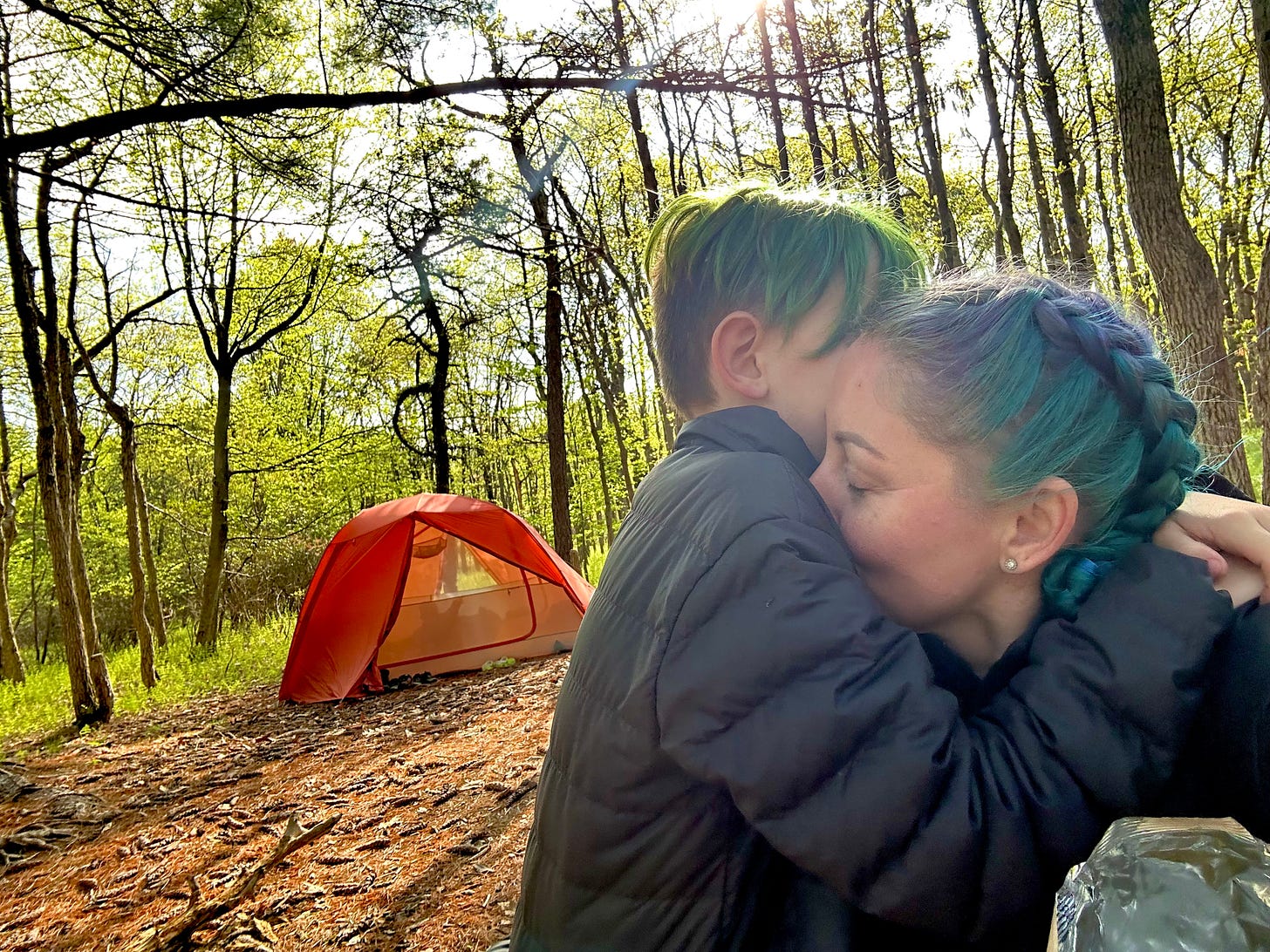
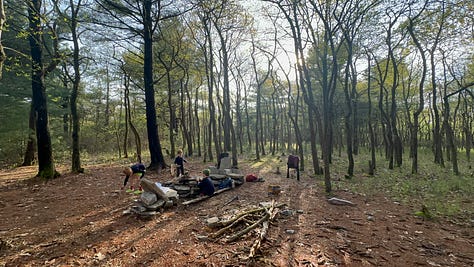
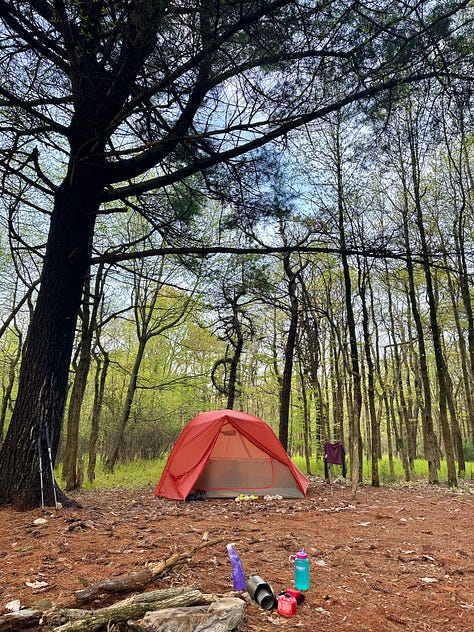
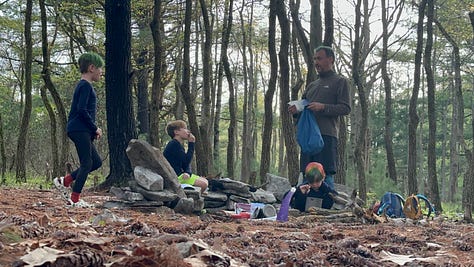
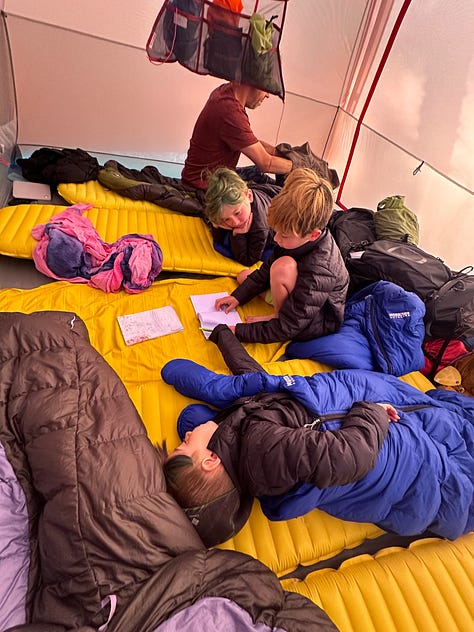
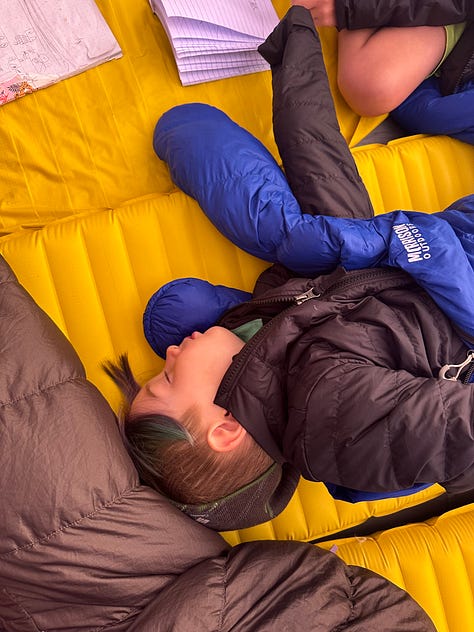
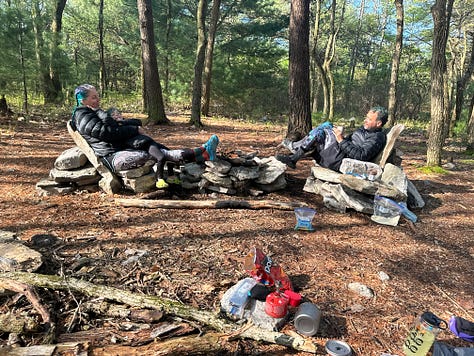
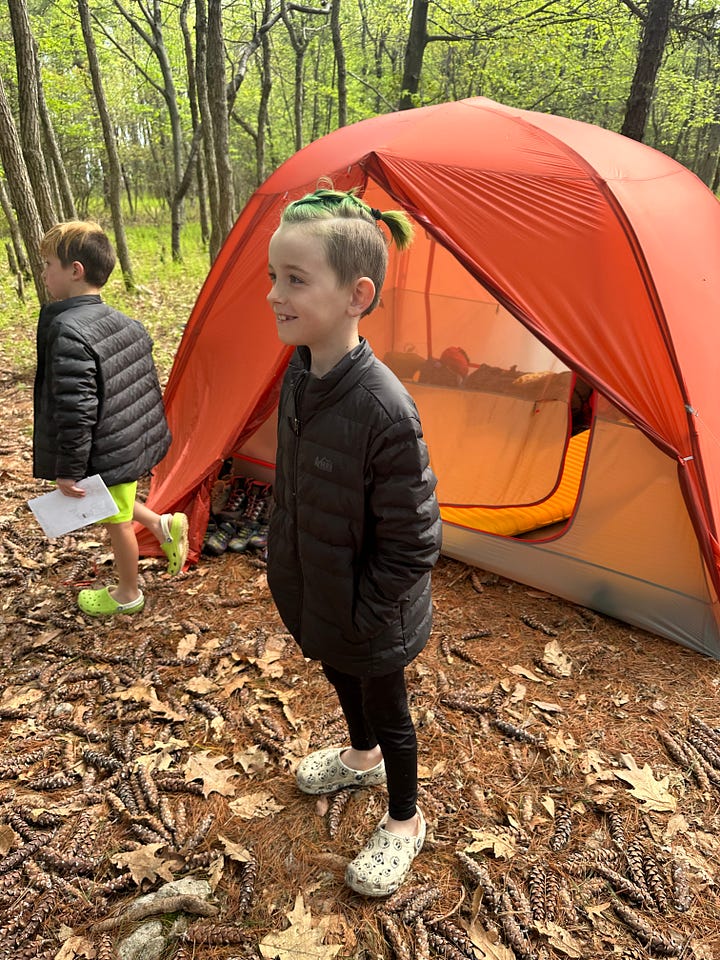
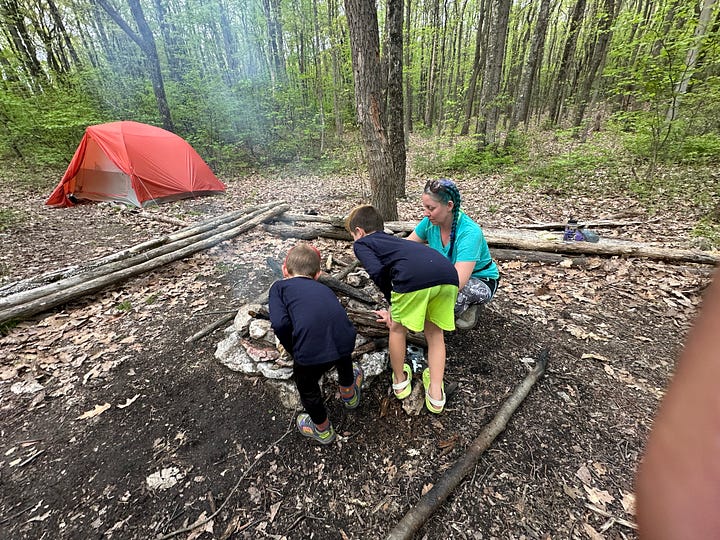
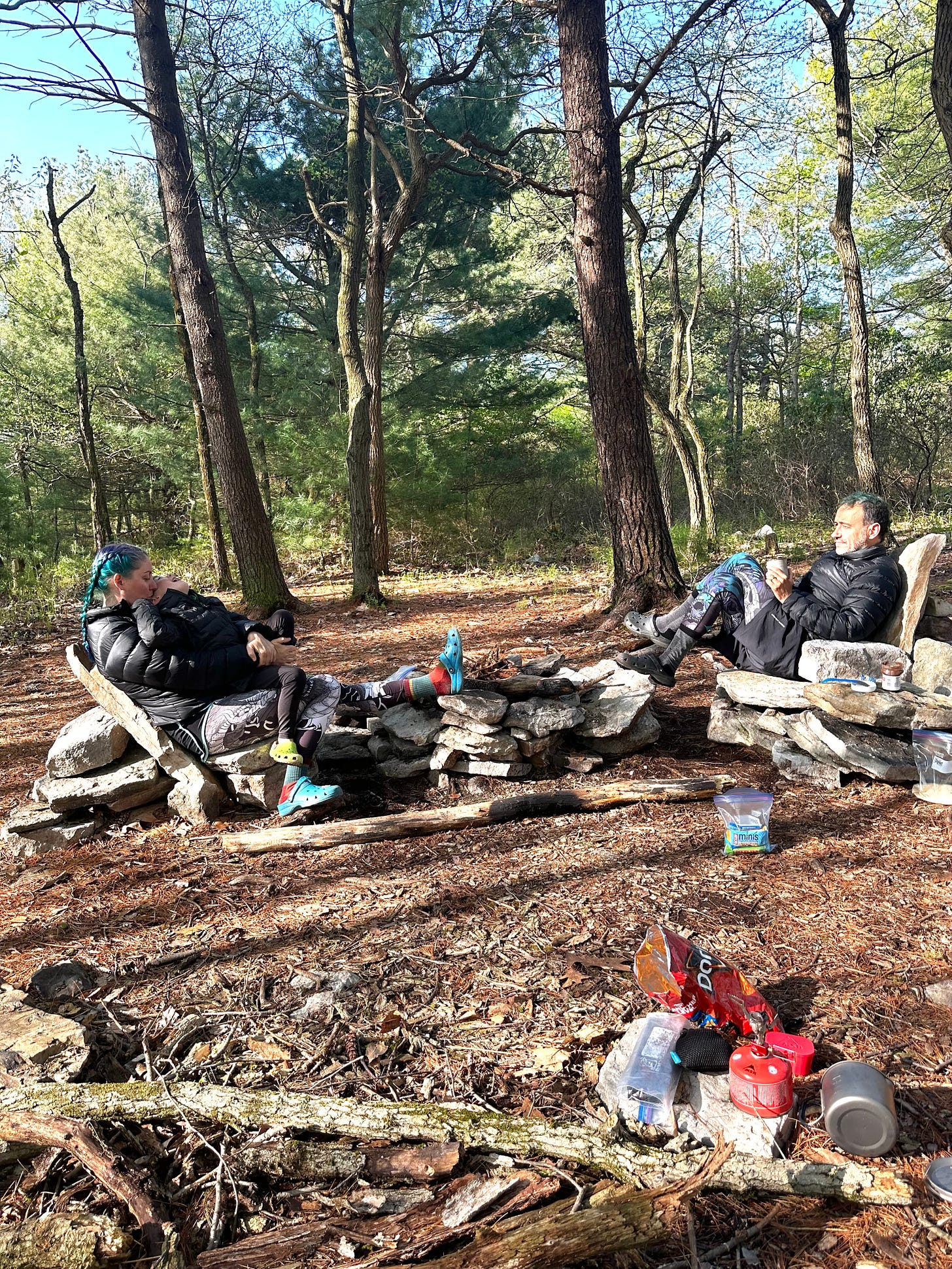
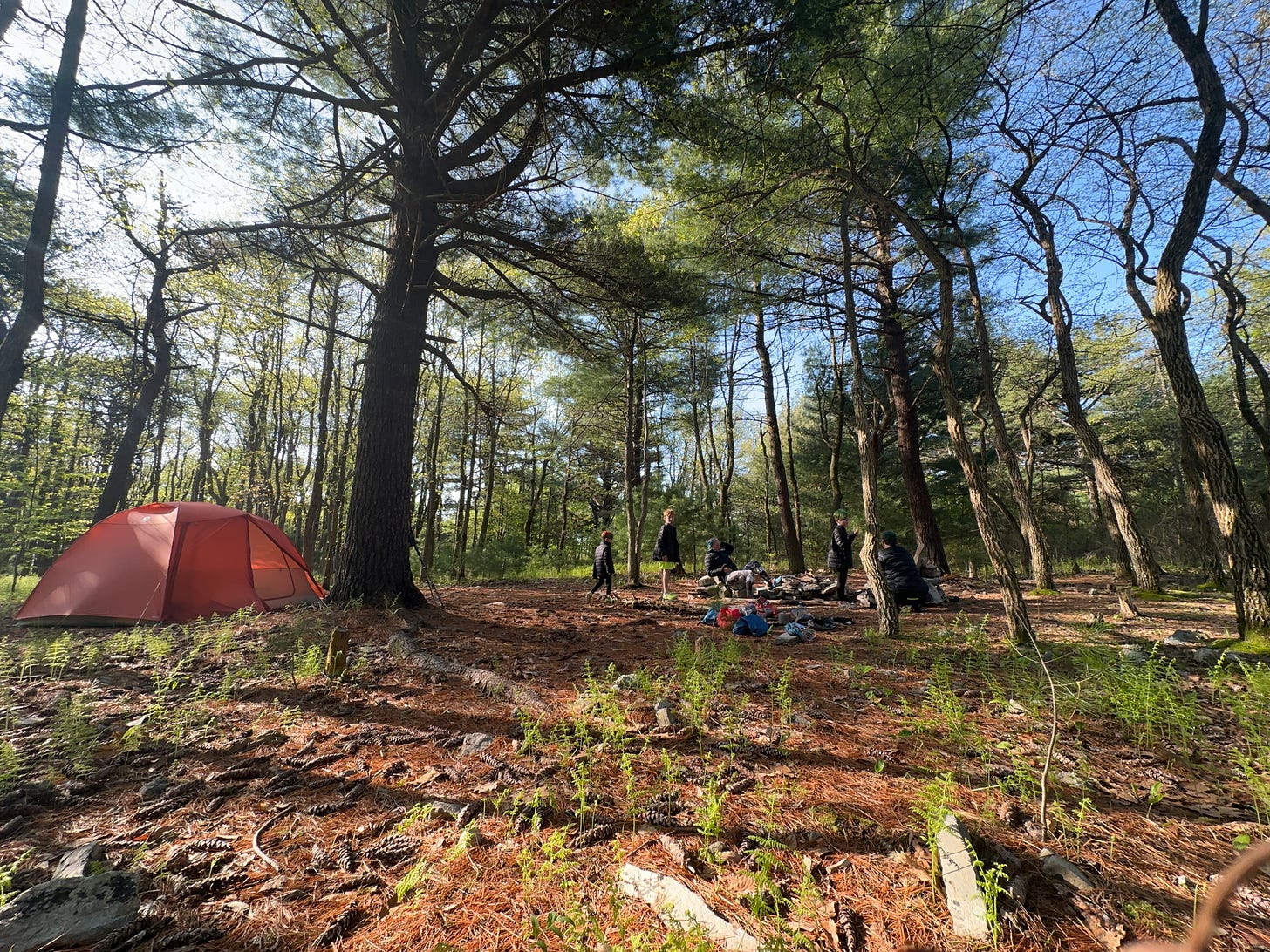
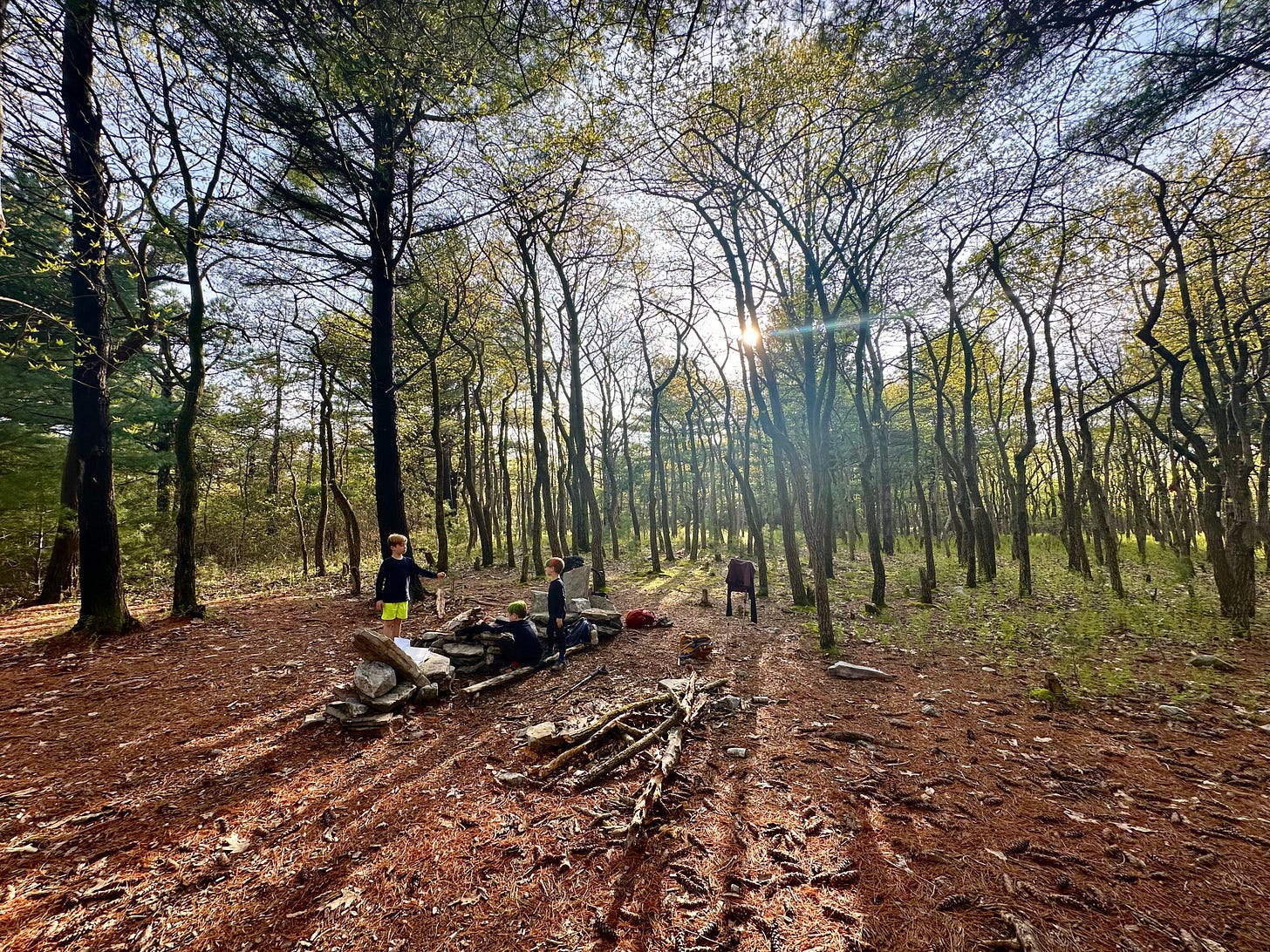
As a general rule, we try to avoid any shelter or tent site that is in close proximity to a road. Since those sites are easily accessible, they tend to be mistreated by groups or individuals who don’t adhere to the leave-no-trace principles, and they generally feel less safe than areas further from a road. Recently, we had planned to stay at a shelter for the night but decided to press on because it was in such poor condition due to misuse, with belongings left in the shelter, trash, discarded camping gear, and human waste behind it. That night, we ended up at a tent site near a road, which was not ideal either due to broken glass, trash in the fire pit, toilet paper left around the site, and high bear activity resulting from people not storing or disposing of food properly. Luckily, such experiences are few and far between. We made the best of it with a large campfire that Rainbow on Fire, formerly Golden Boy, kept blazing until hiker midnight.
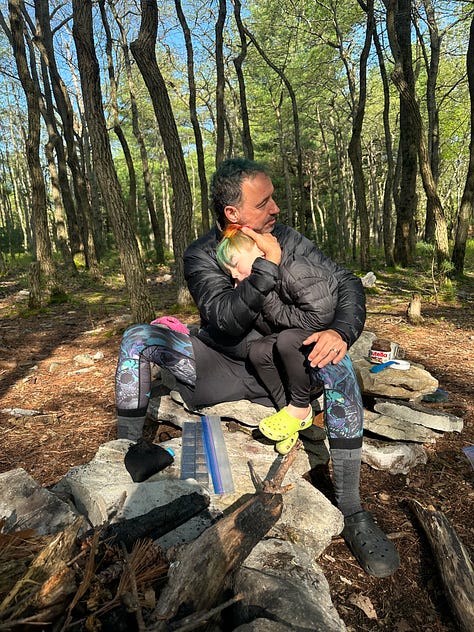
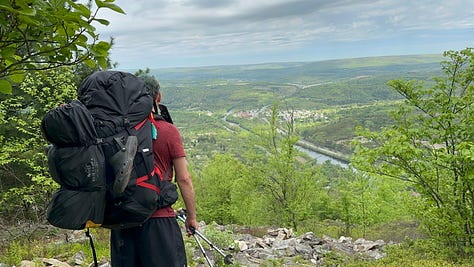
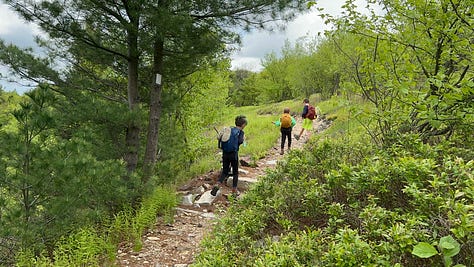
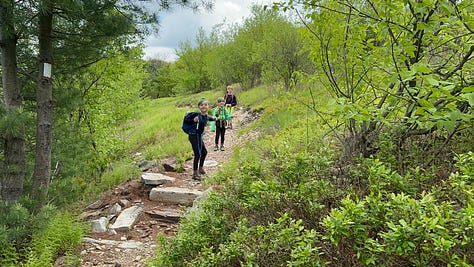
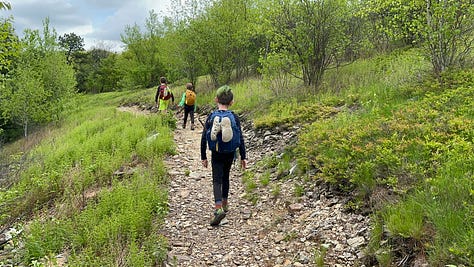
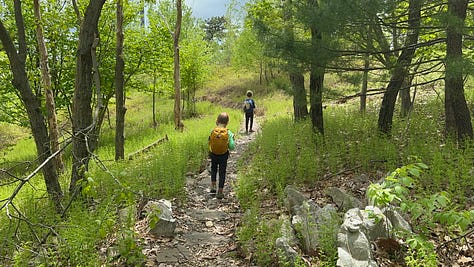
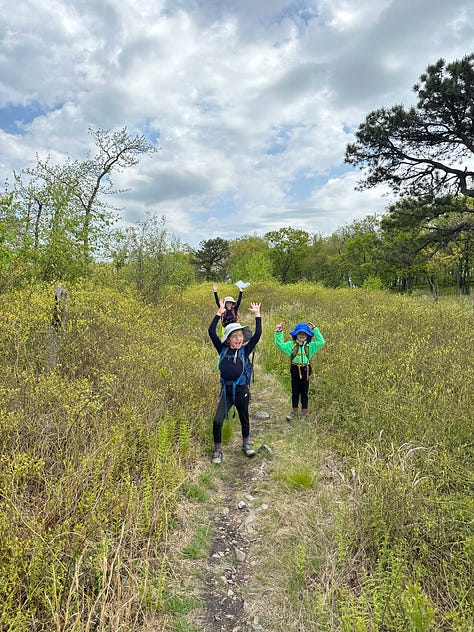
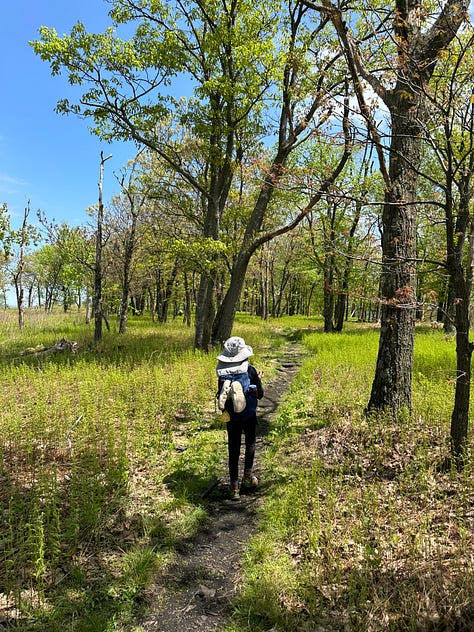
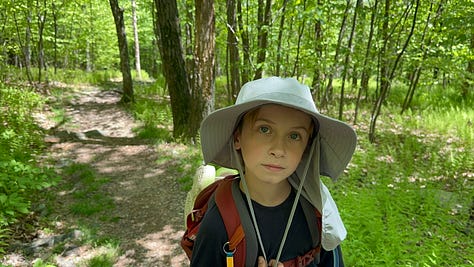
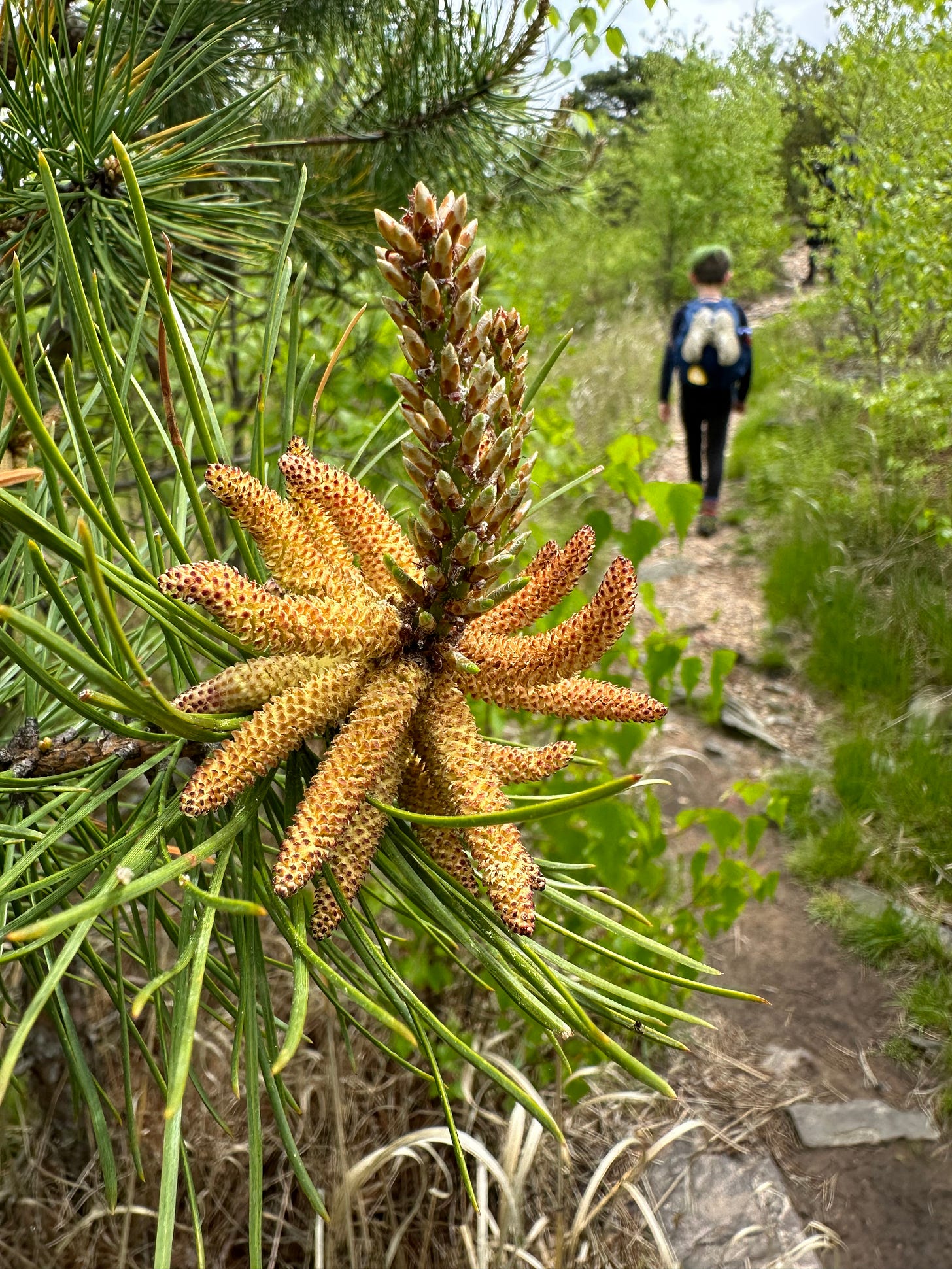
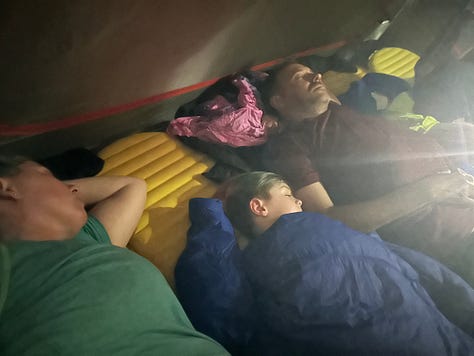
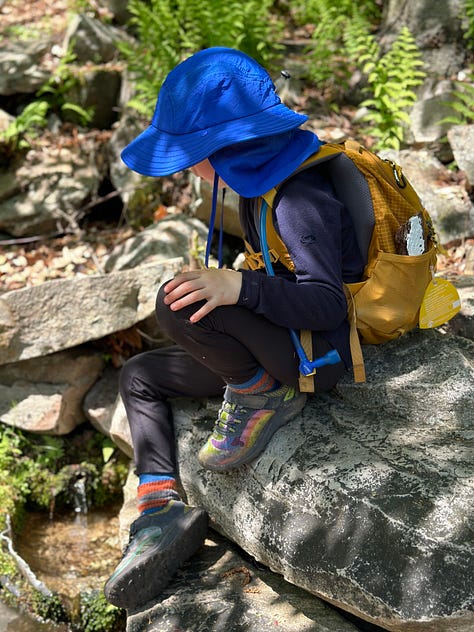

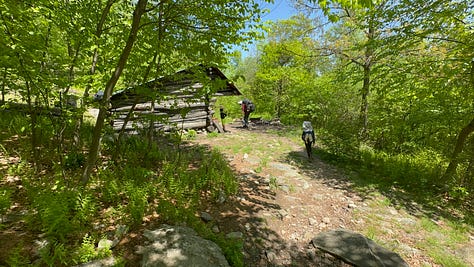
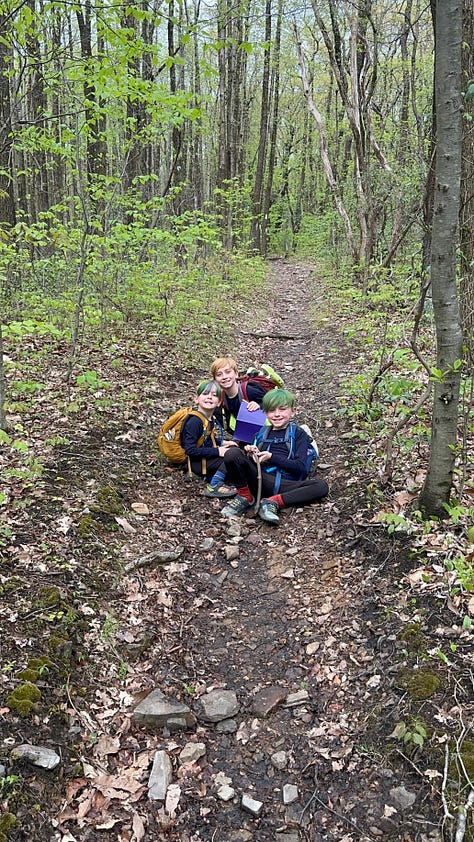
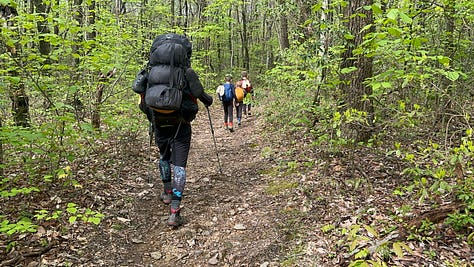
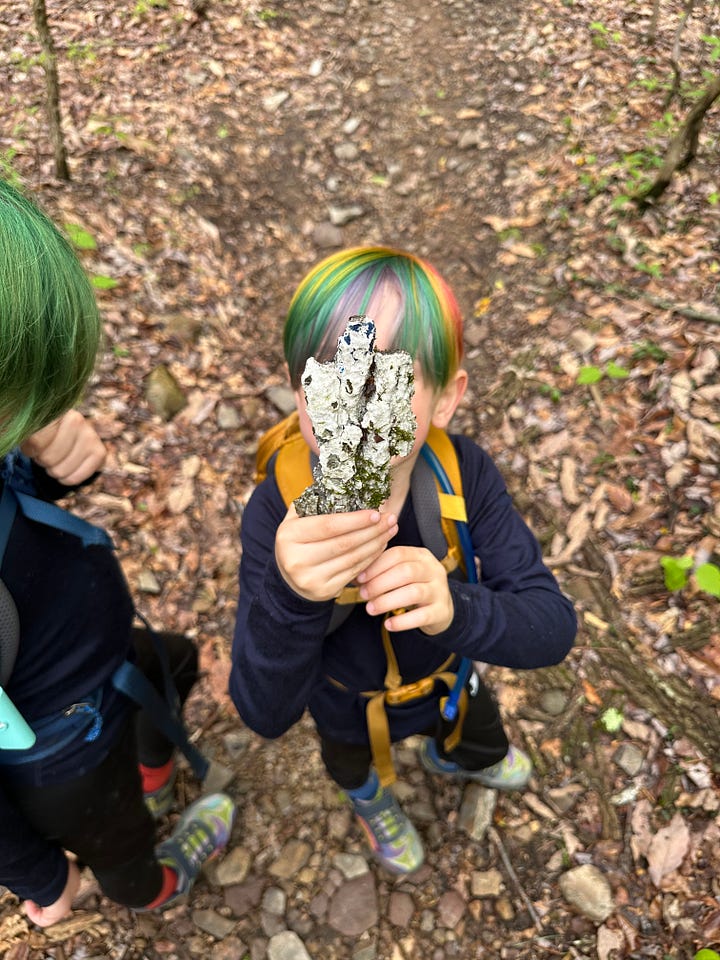
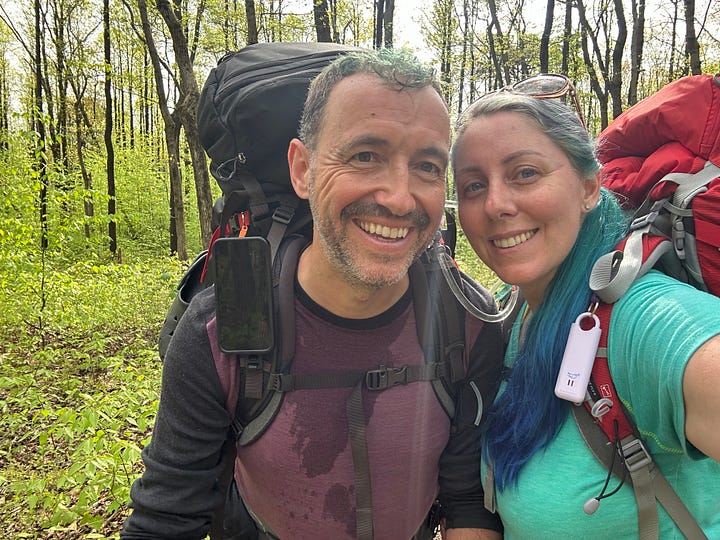
Among our wildlife encounters this week was a stunning blue-eyed rat snake. We discovered that his eyes shone blue as he prepared to molt his skin. Additionally, a few red-spotted efts and countless tent caterpillars graced us with their presence. Our botanical knowledge expanded as we familiarized ourselves with the names of numerous trees and plants. We also learned that the red-spotted eft, although adorable, is poisonous which explains their bright color and fearless nature.
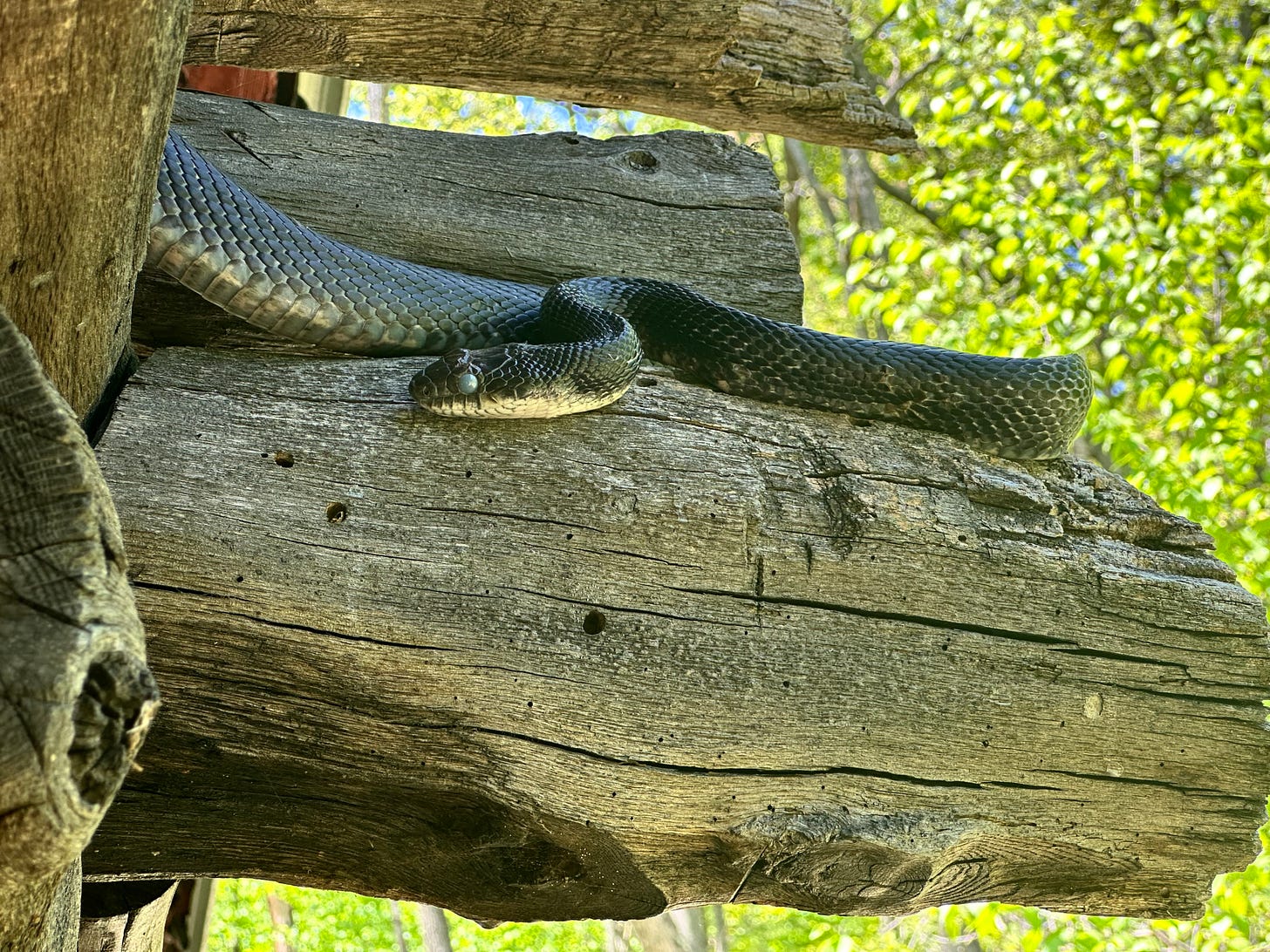
Rat snakes are constrictors and are found throughout the northern hemisphere. They are not aggressive and feed primarily on rodents. It’s always nice to have one around a shelter.
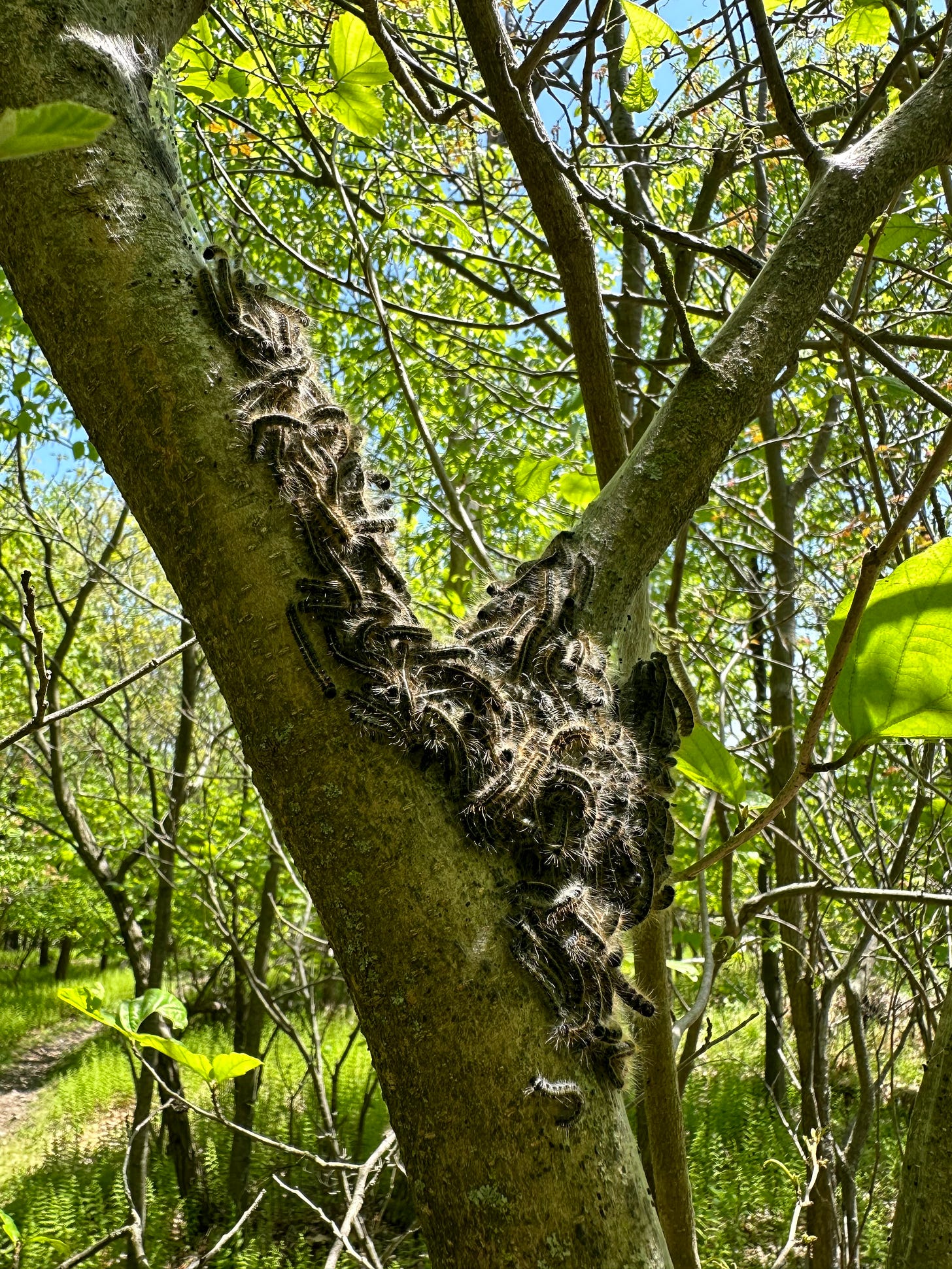
Tent caterpillars do not cause serious injury to their host plants and can even be beneficial to their environment by providing a food source for wildlife. Tent caterpillars generally only defoliate a few branches and only actively feed for a few weeks.
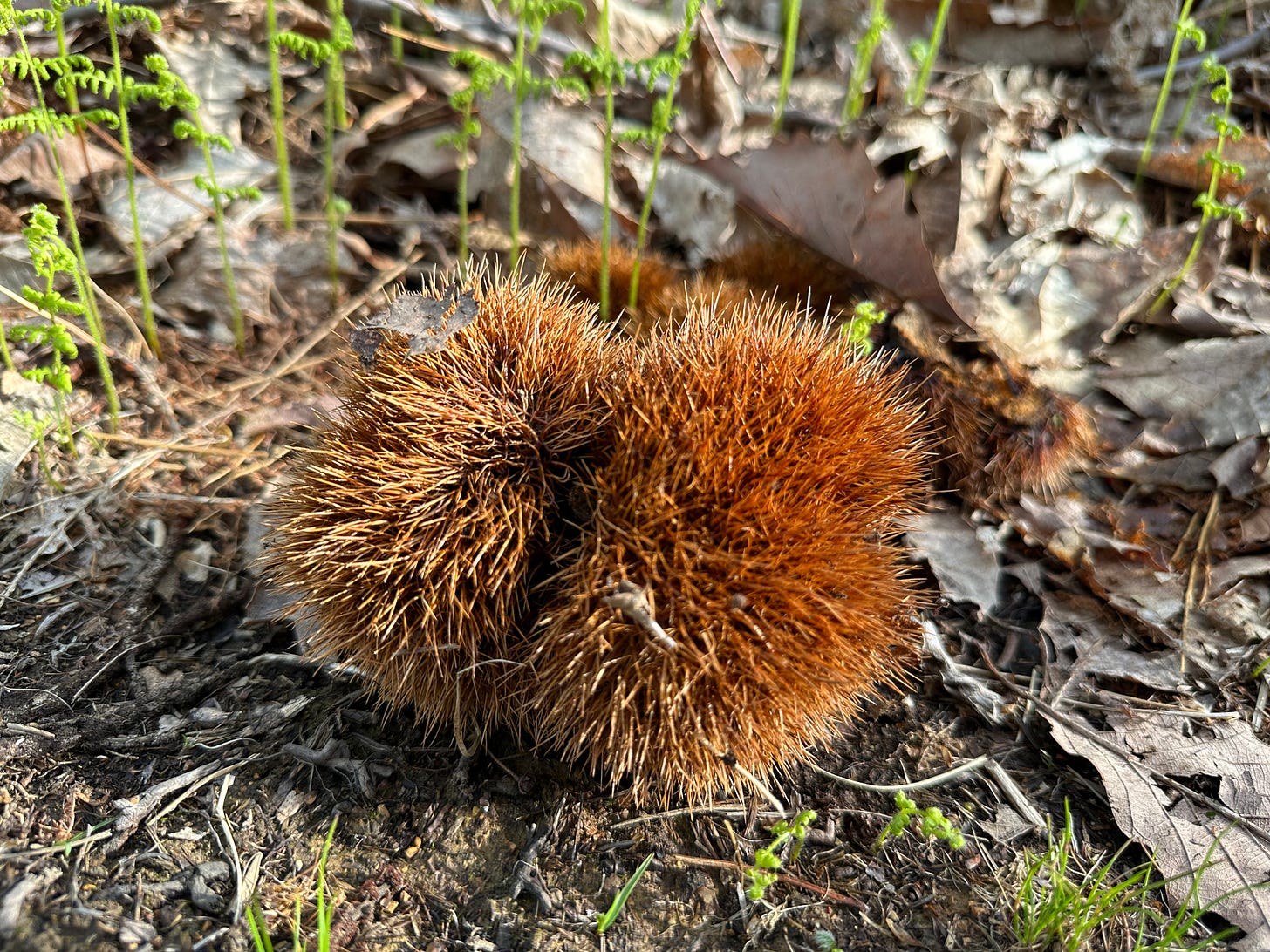
The American chestnut is native to southern and eastern parts of the United States, particularly along the Appalachian Mountains.
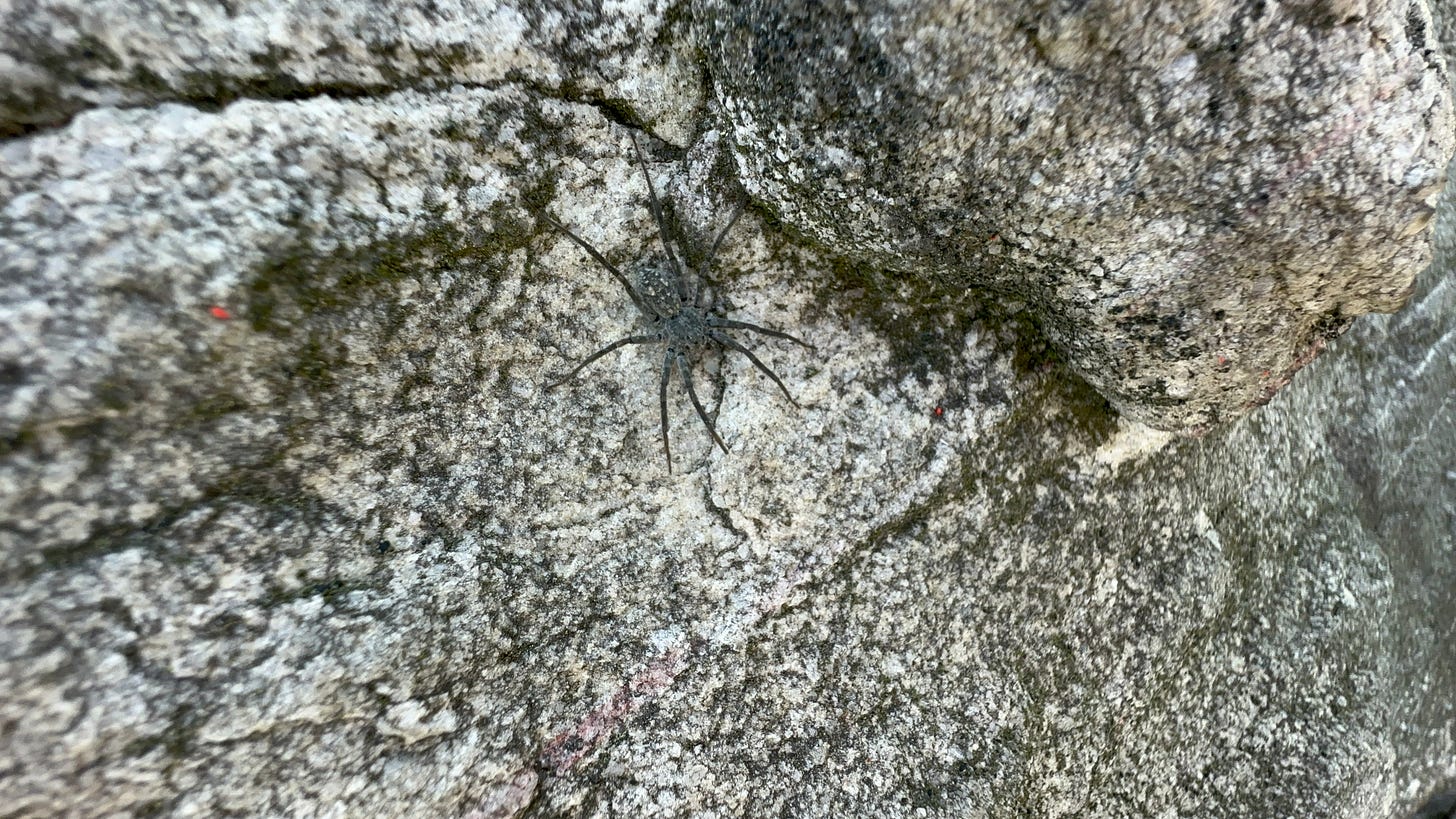
The stone spider is a member of the wolf spider family. It is found in the US and Canada.
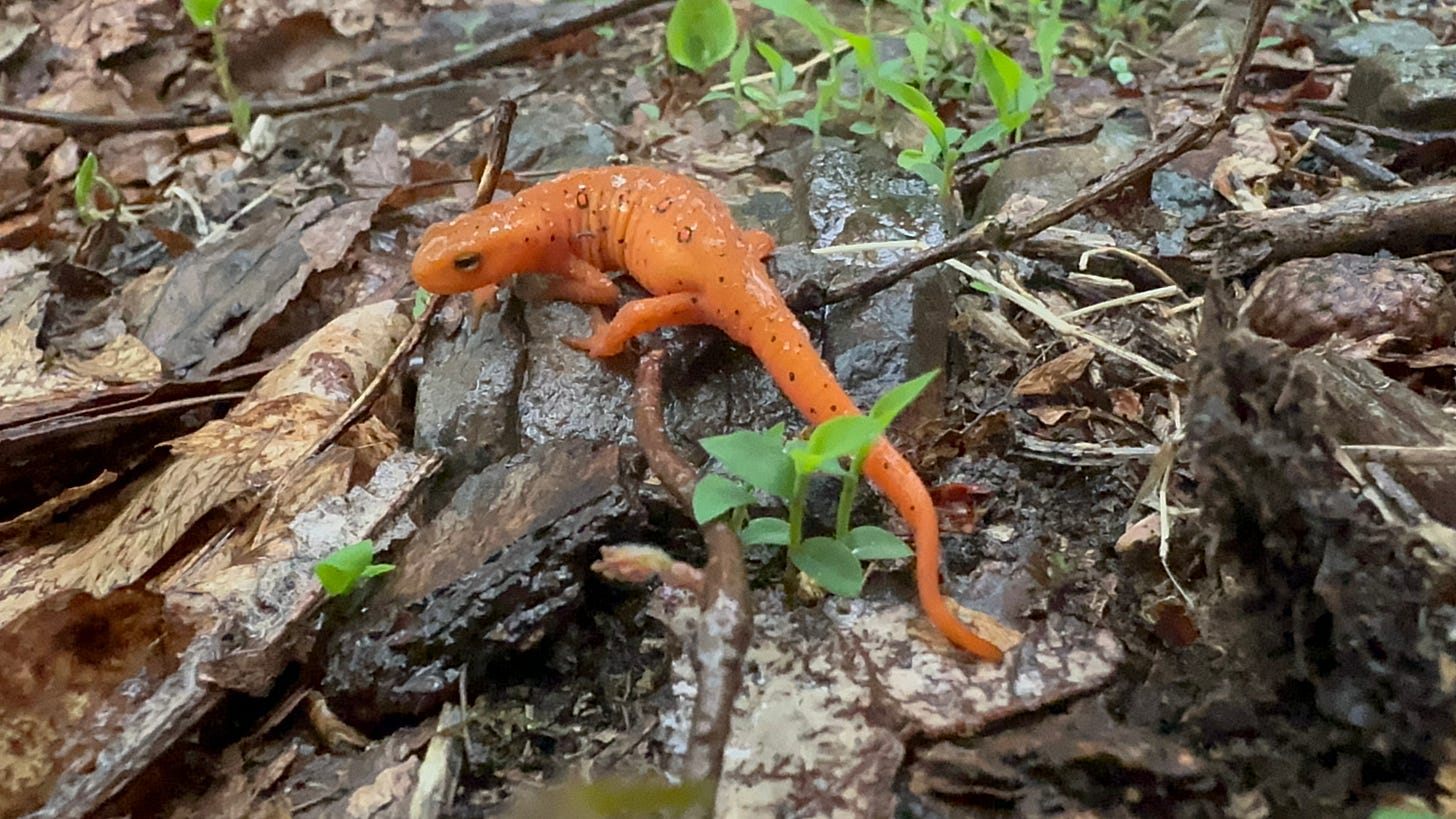
In addition to their bright warning coloration, the red-spotted eft has the ability to secrete toxins from their skin as a defense mechanism. Therefore, despite their gentle demeanor, they should not be handled.
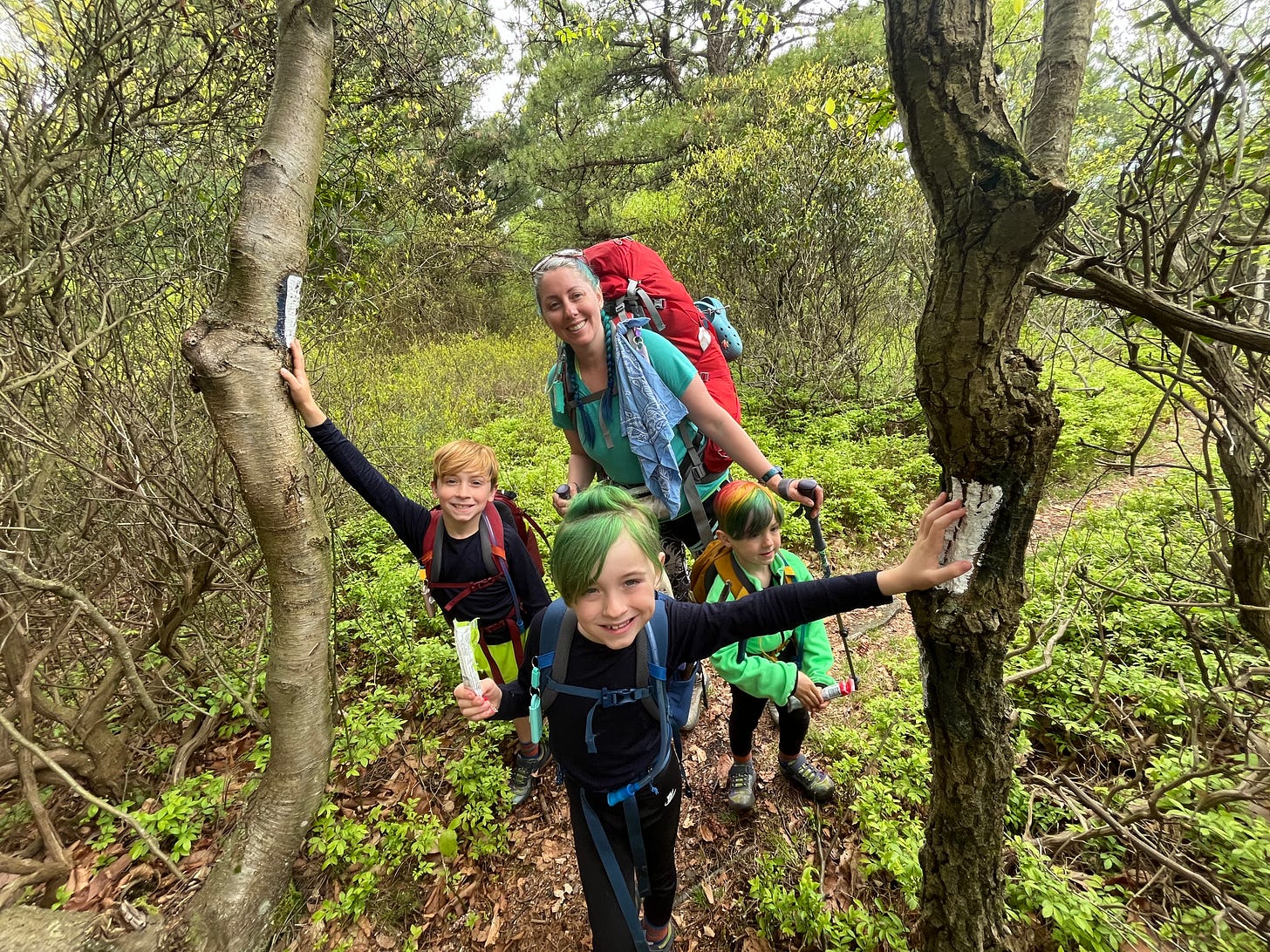
I’m in awe of the boys' budding love of the great outdoors. Seeing them playing in the dirt, happily engrossed in outdoor activities warms my heart. They constantly entertain one another with stories and imaginative creations they’ve built from nature. Sometimes as they play, a line from the 2005 movie Madagascar pops into my head, “Agh! Nature it’s all over me. Get it off! I can’t see!” and I have to laugh. There's never a dull moment here; always something to explore, contemplate, or ignite their imagination.
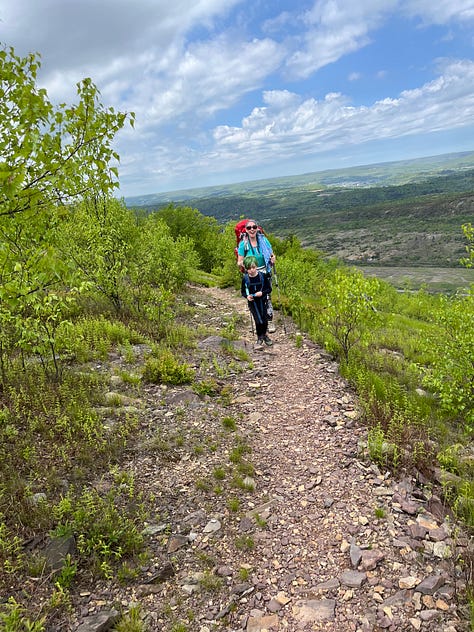
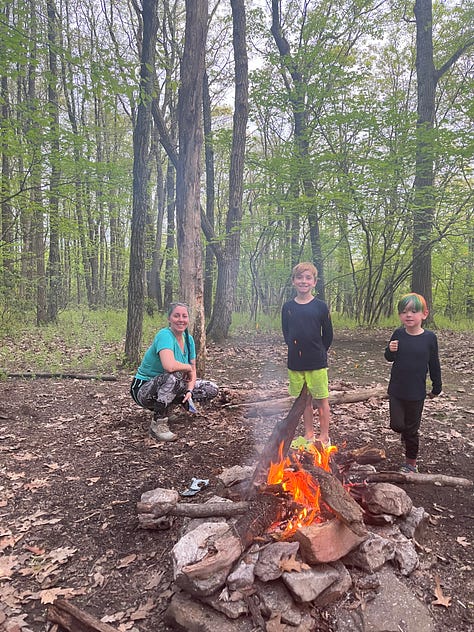
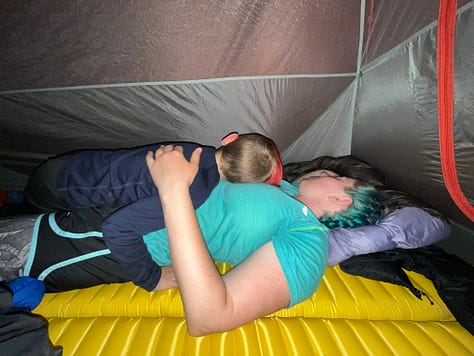
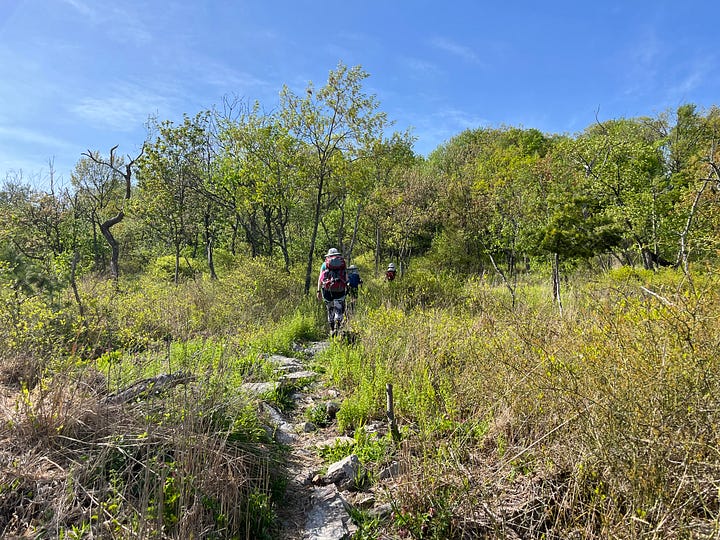
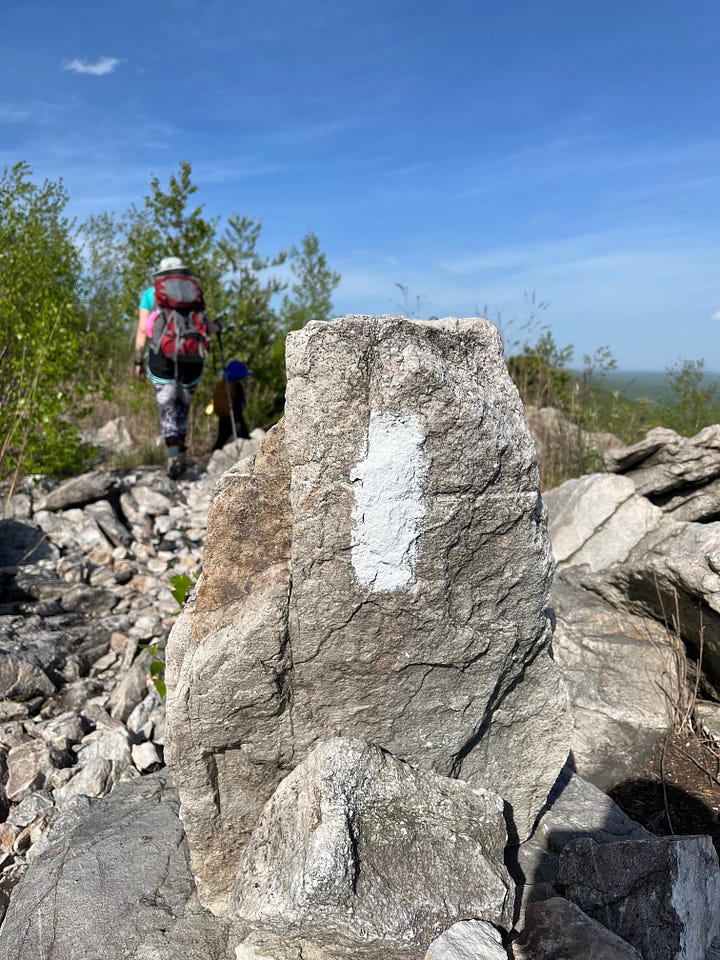
Our bodies have adjusted to our new sleeping schedule. We sleep when the sun sets and rise with the morning light. There are no alarms out here. The only use for a watch is to calculate the distance we’ve hiked and determine how much longer we can keep hiking. I am blissfully unaware of the day of the week or the date. The strength and endurance of our group is improving daily.
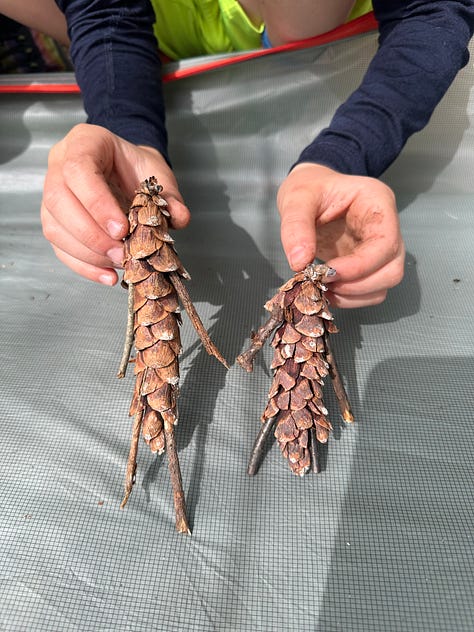
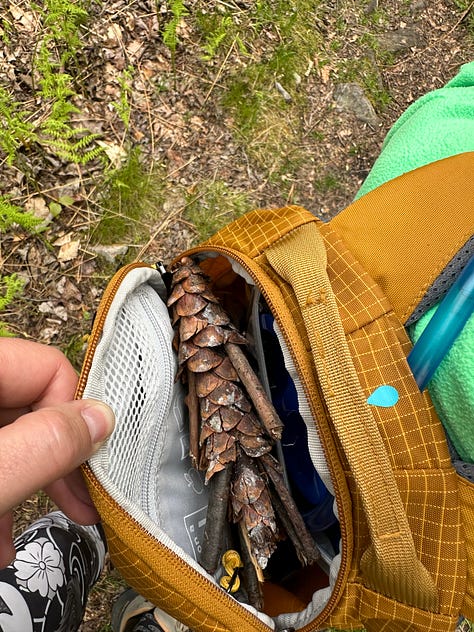
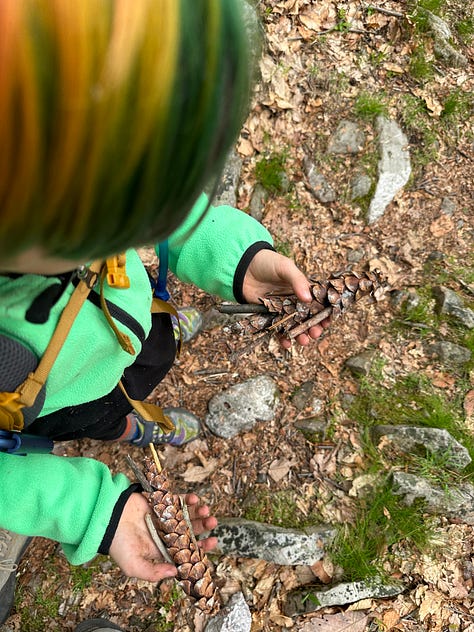
The particularly dry stretch of trail surrounding Palmerton, Pennsylvania has been the prettiest section of the trail so far. We’ve experienced trail magic in the form of water caches left by trail angels to combat the lack of water as well as trail magic in other forms. Guardian and Grumpy were set up on the trail providing hikers with so many delicious sweets and treats including homemade banana bread and fresh fruit. We also met trail angel, Mary Poppins. She keeps a cooler stocked with juice and water along the trail for parched hikers.
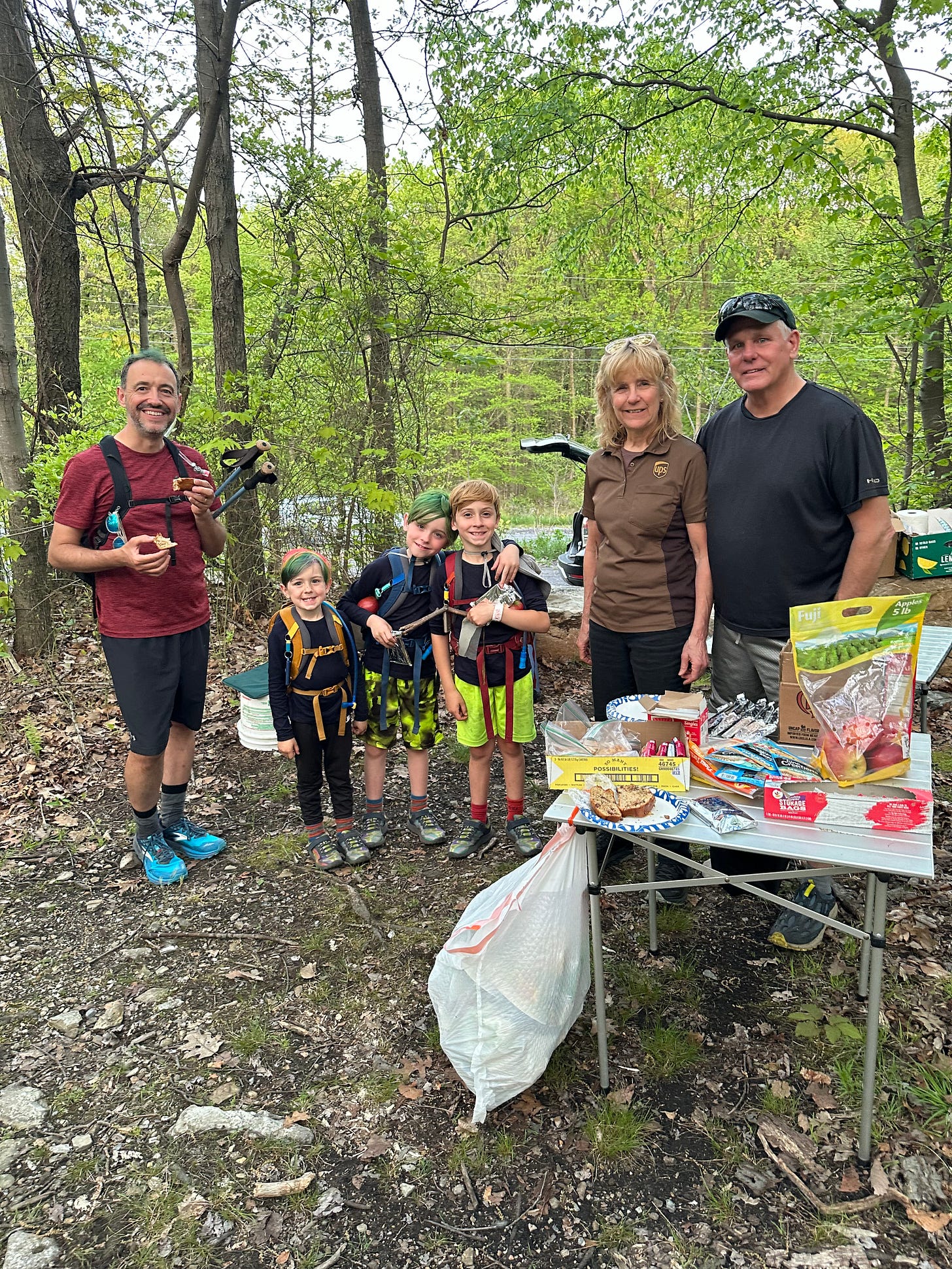
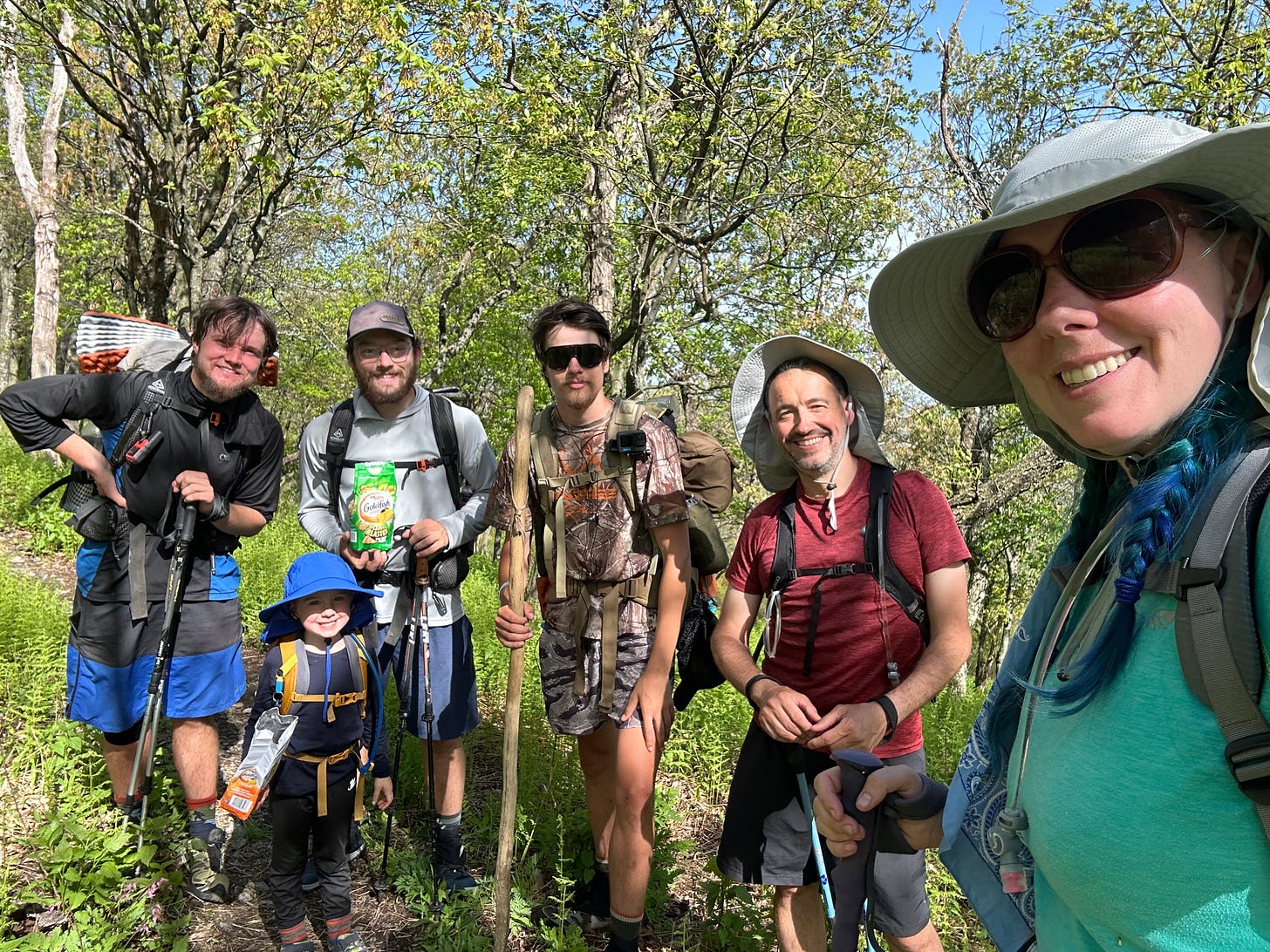
Now that we’re heading north again, we’re meeting lots of thru-hikers that have hiked the whole way from Georgia. We’re also continuing to see the friendly faces of hikers that we previously met while we were slackpacking south.

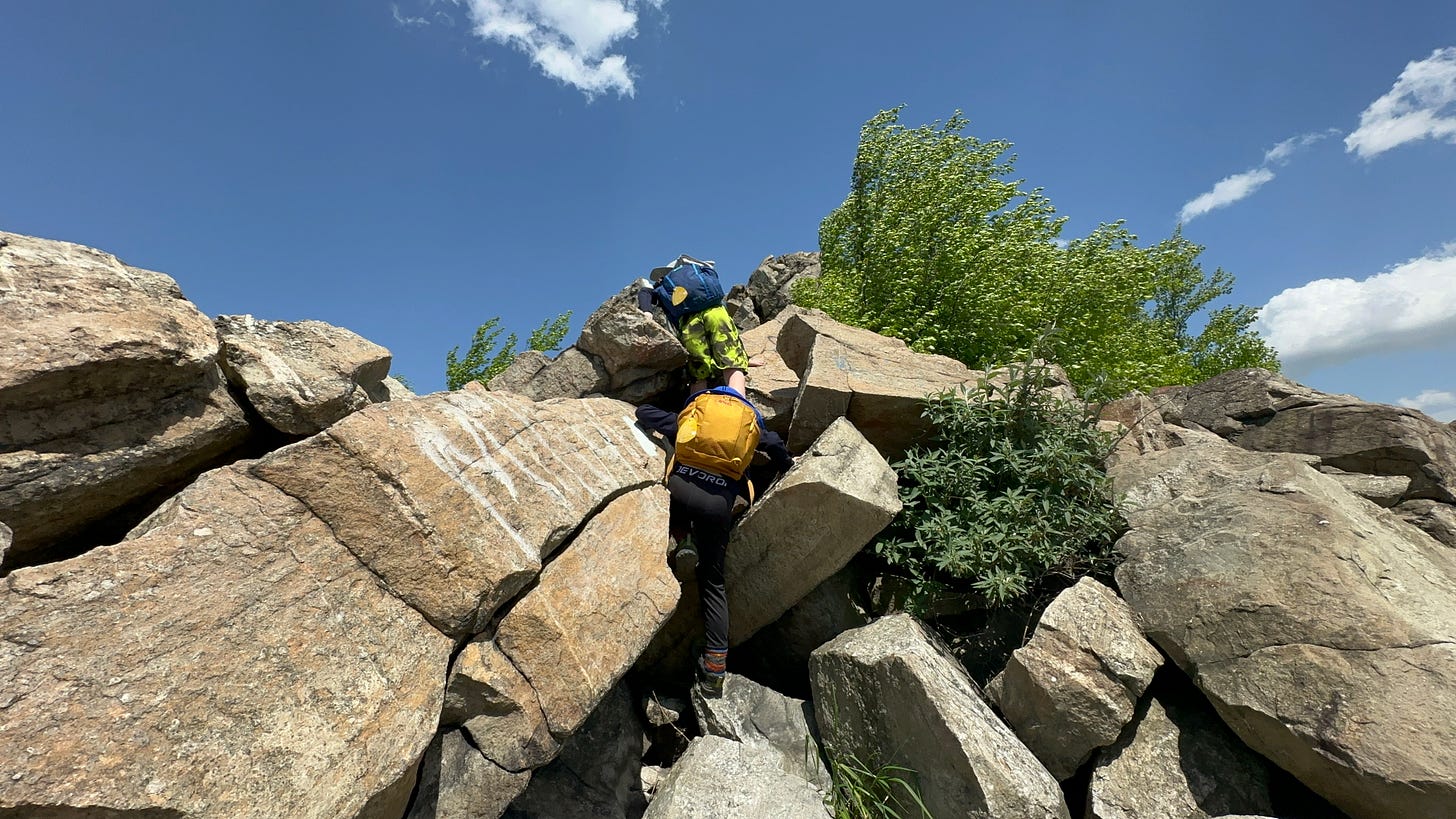
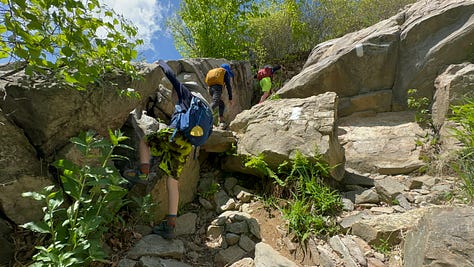
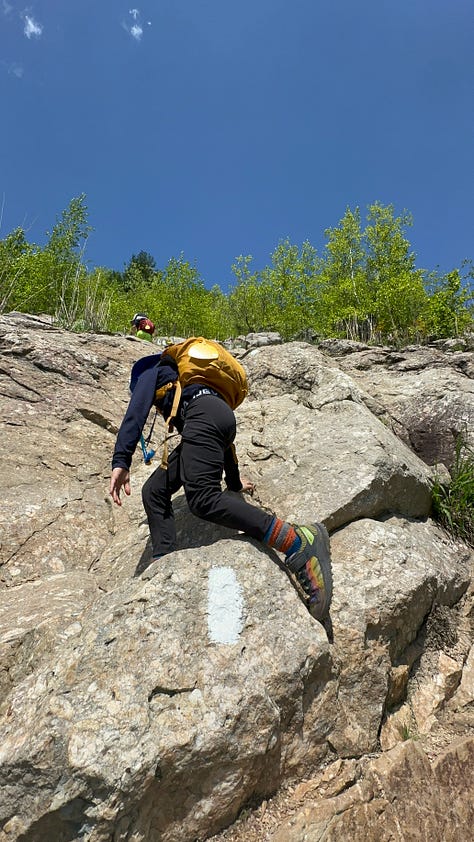
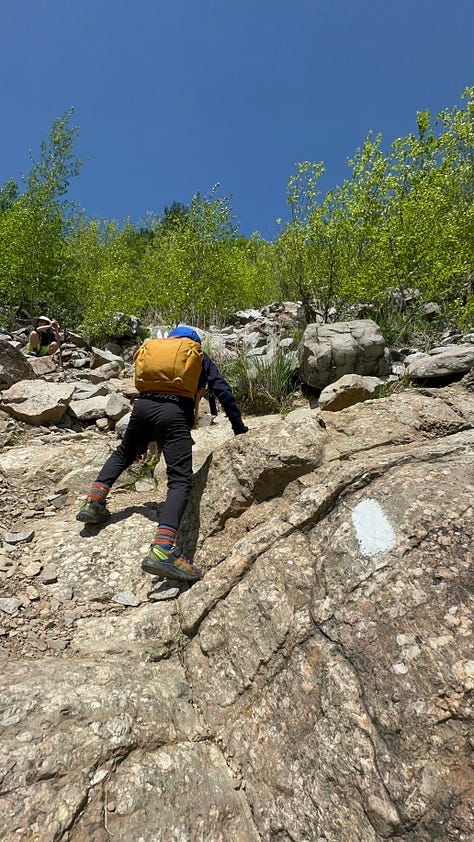
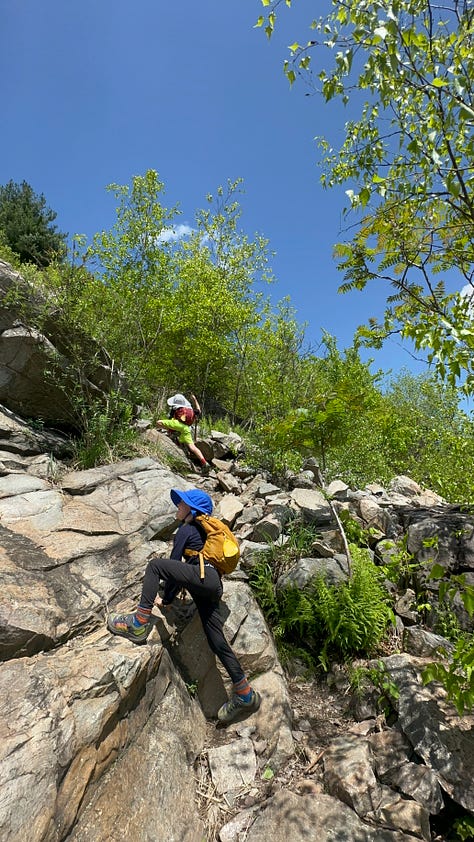
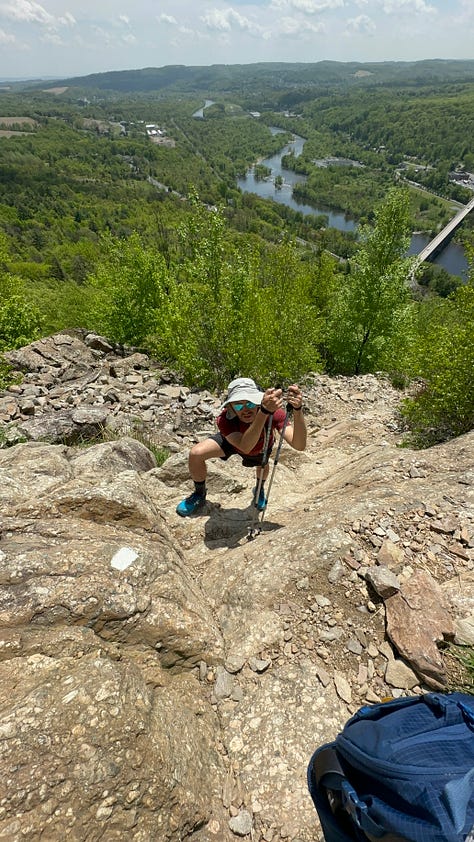
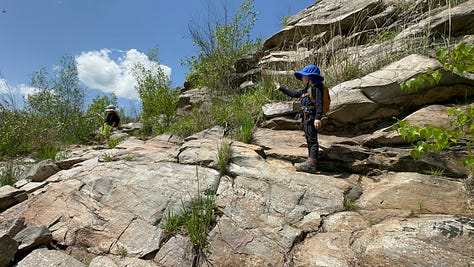
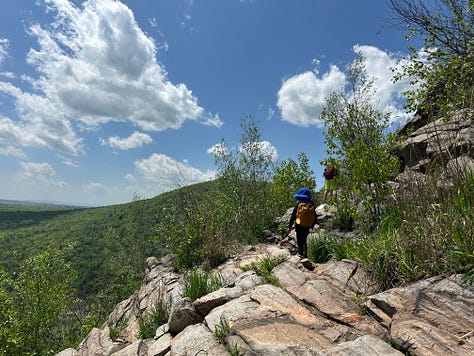
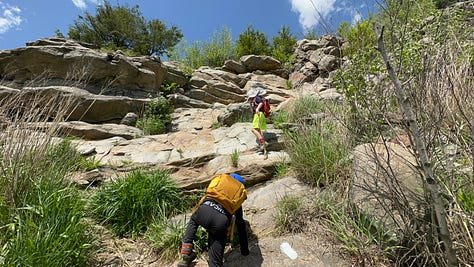
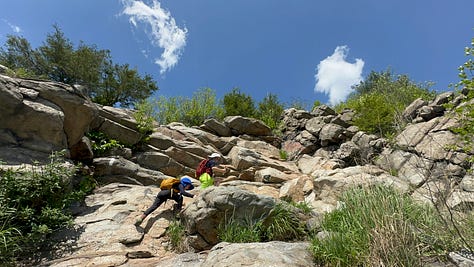
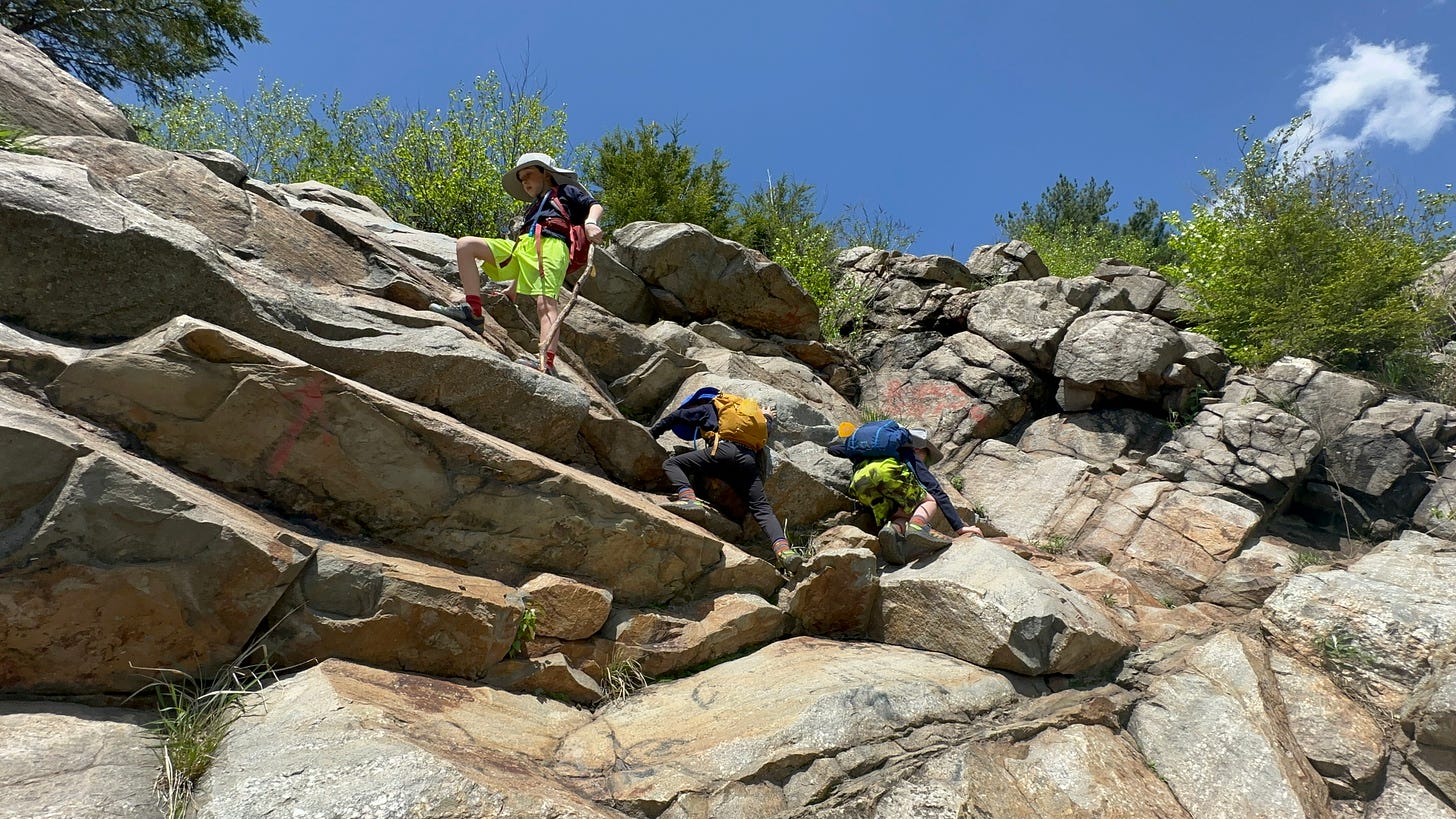
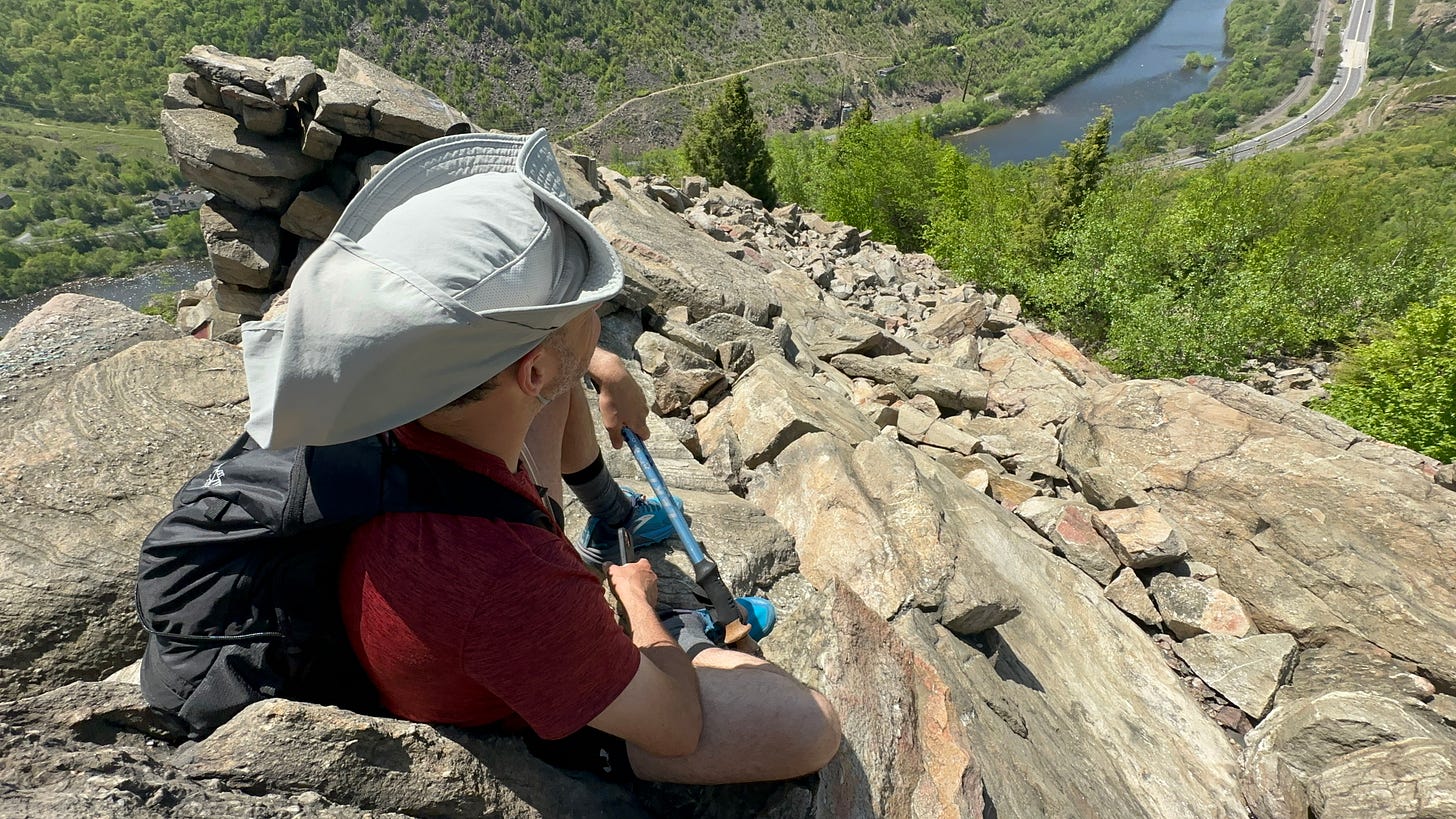
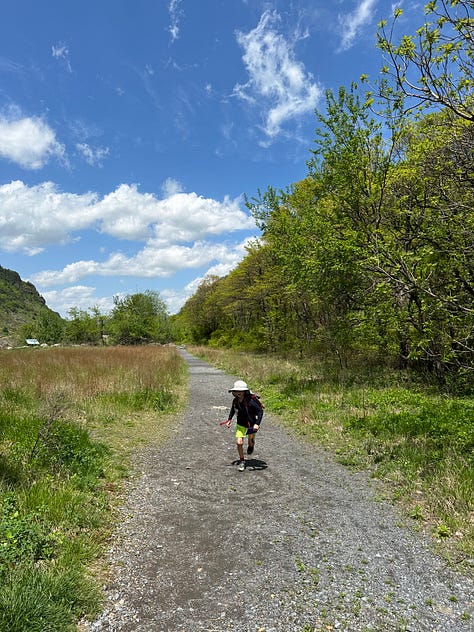
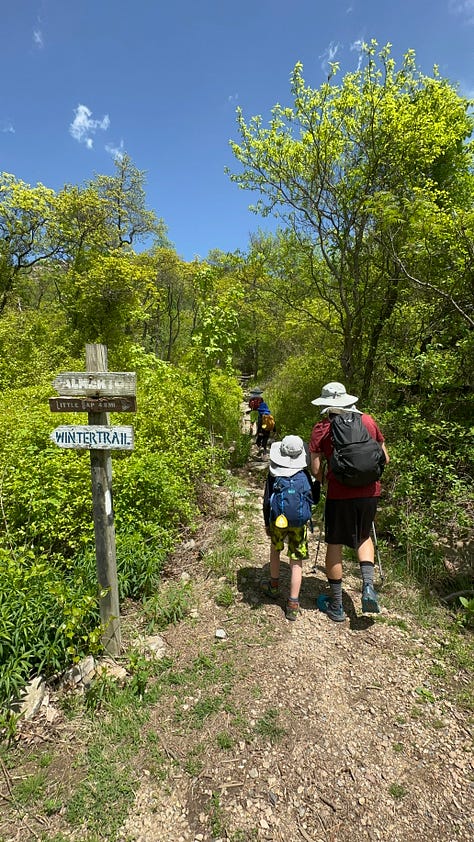
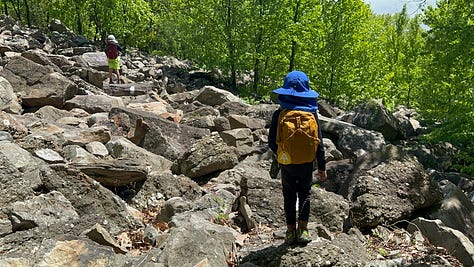
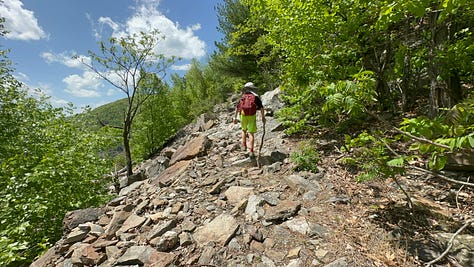
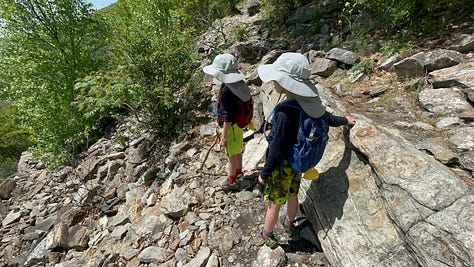
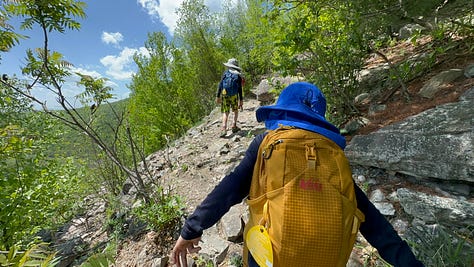
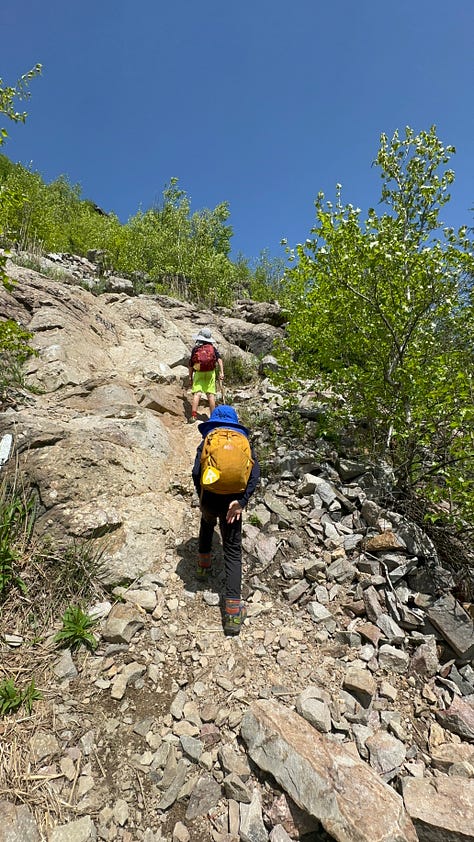
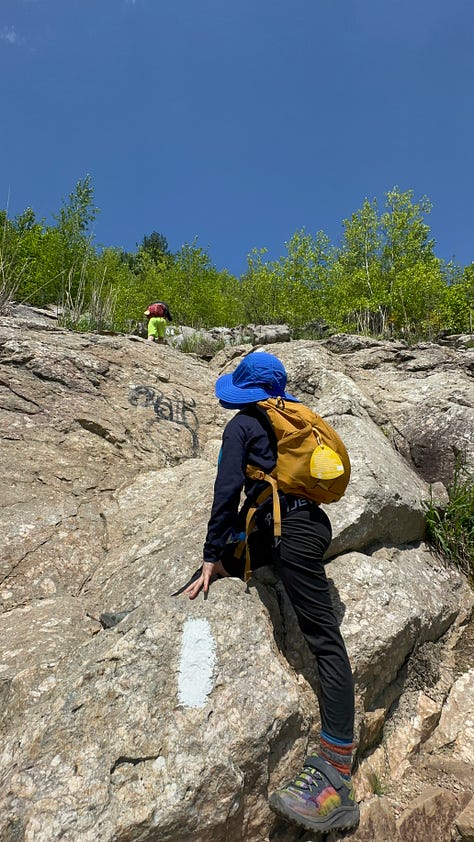
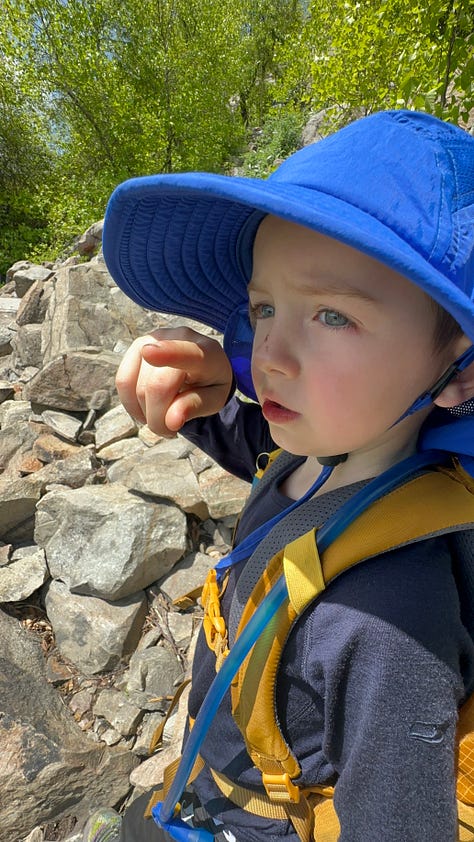
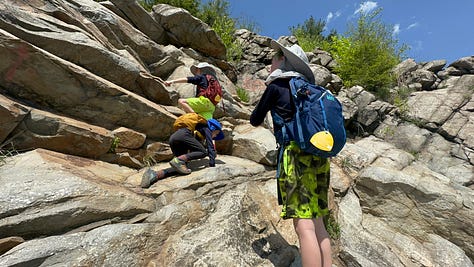
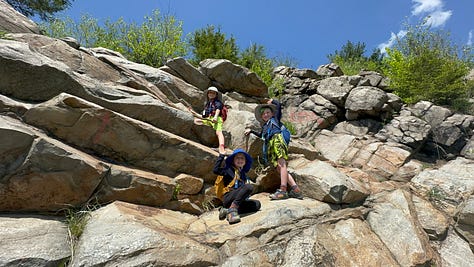
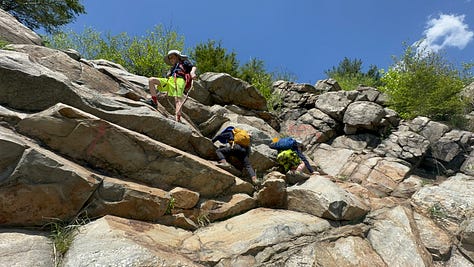
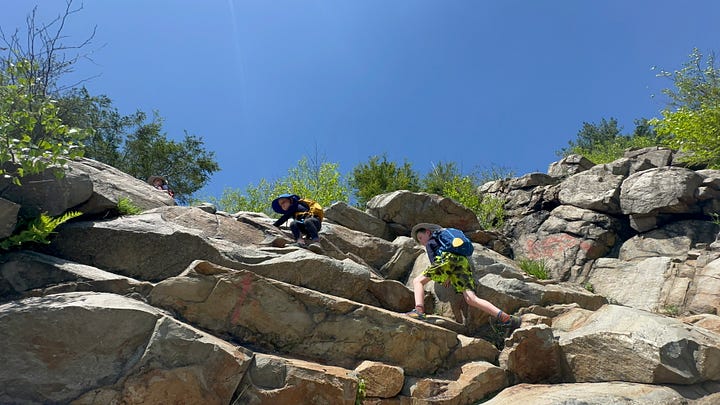
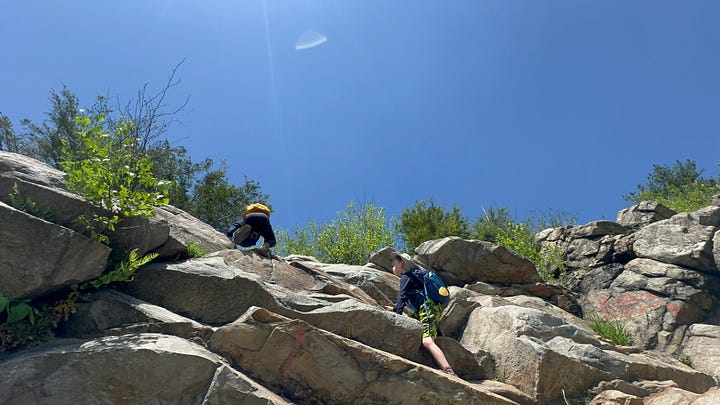
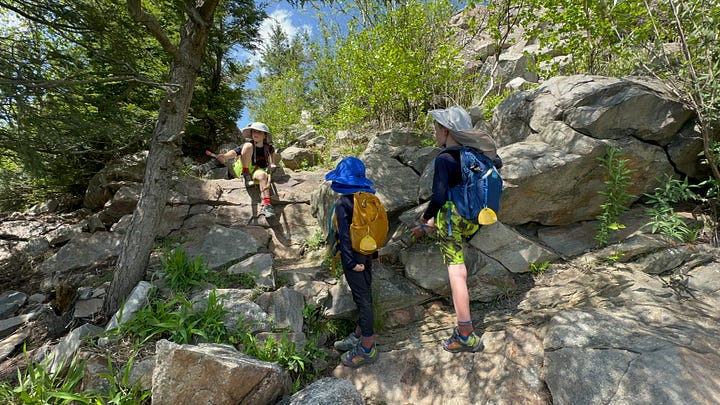
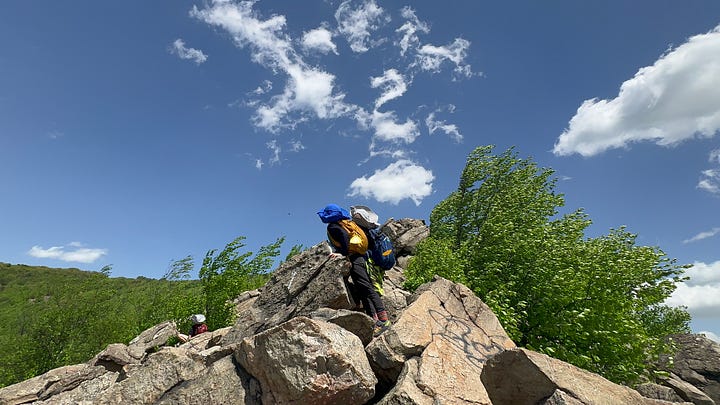
We loved climbing the Lehigh Valley cliffs above Palmerton this week. It was the most fun, challenging and beautiful part of the trail so far. There were so many stunningly gorgeous views all along this section. We had a spectacular, 82-degree, windy day with blue skies and no bugs as we ascended the cliffs. It was our favorite day on the trail so far.

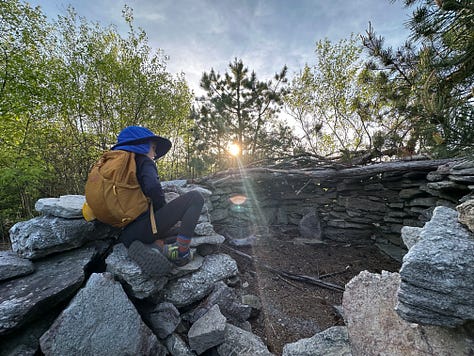
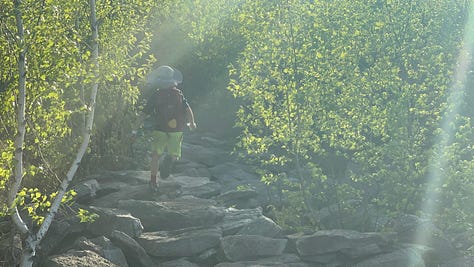

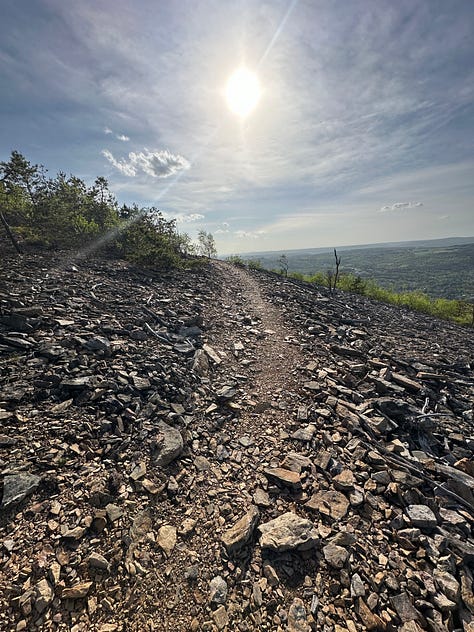
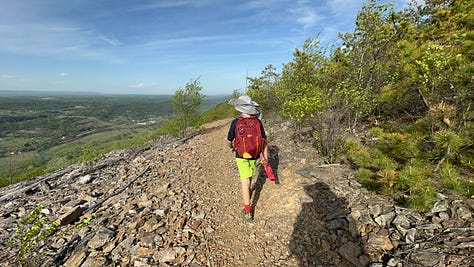
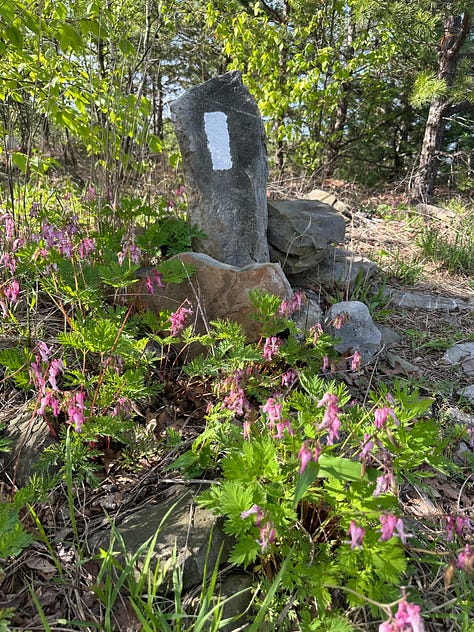
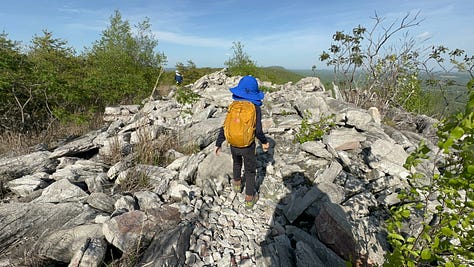
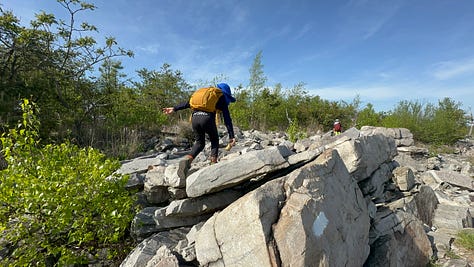
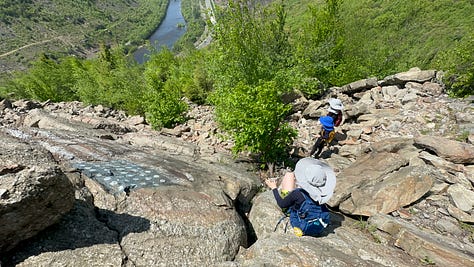
Pink flowers called Wild Bleeding Heart colored the rocky landscape, adding to the beauty of the trail through this section. The alternate name for Wild Bleeding Heart is Turkey Corn, which we all found hilarious. We had fun pointing and shouting “Turkey Corn” every time we saw it.
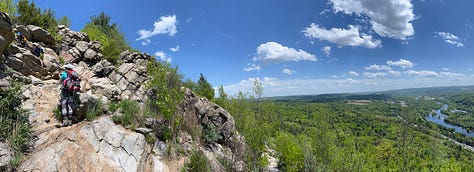

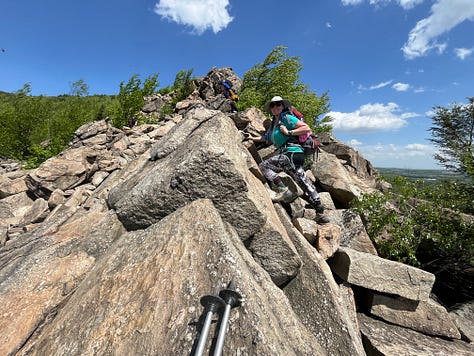
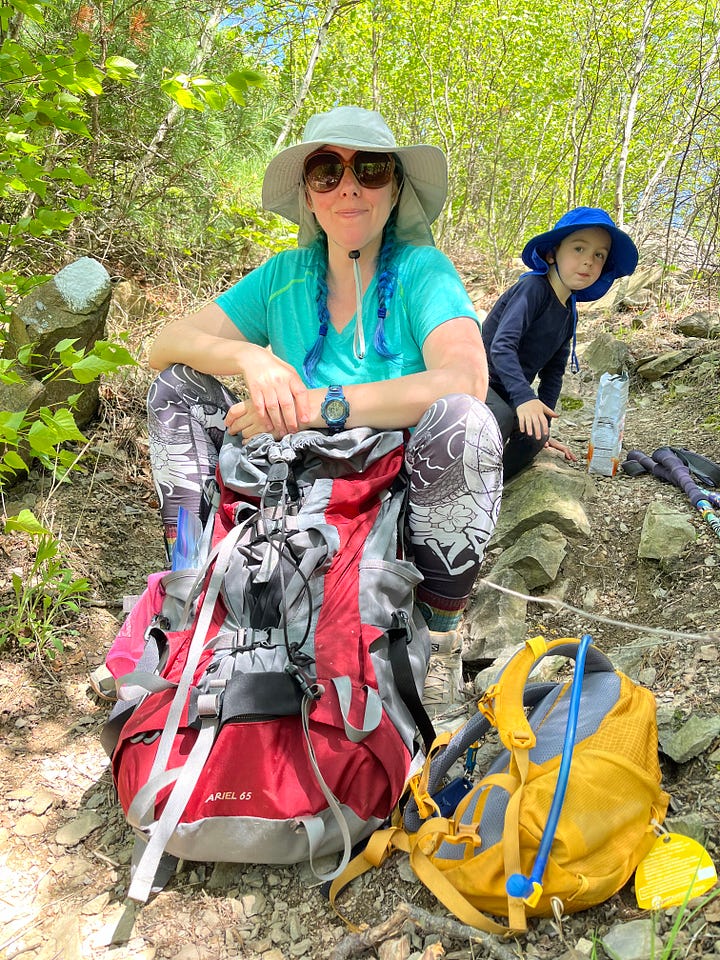
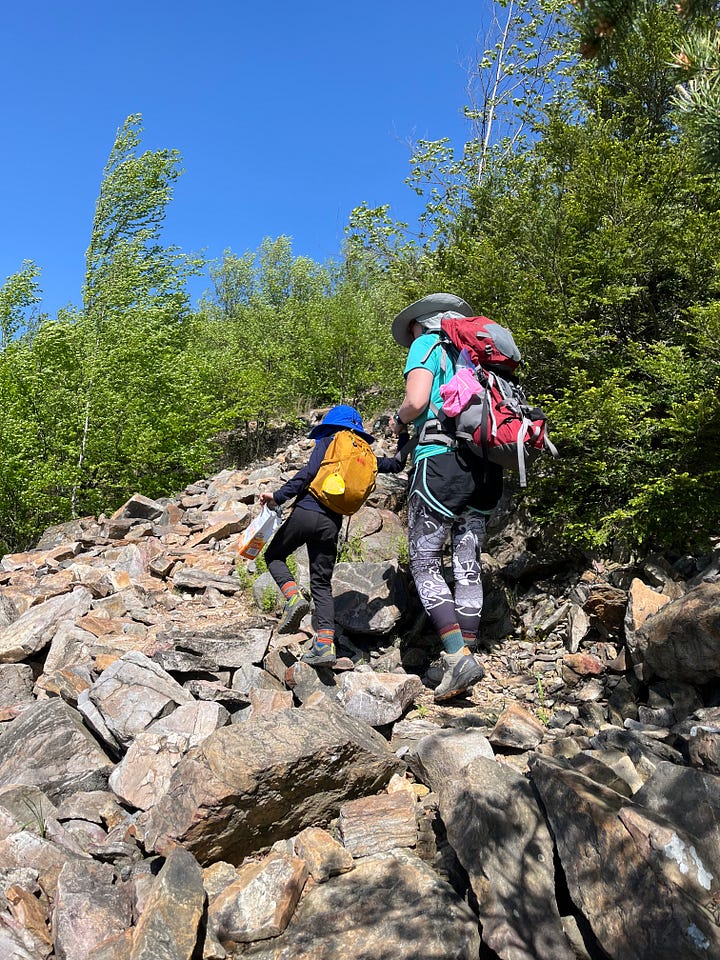
At one point, Super Tramp and I got quite ahead of our group. We stopped and waited for them for twenty minutes at a turnoff that we were afraid they may miss. Growing restless, we wrapped a bag of Cheez-Its with a headlamp and placed it at the turn to draw attention to the reroute in the trail.

A while later, we met someone camping in the woods and stopped to chat with them for twenty minutes or so, asking them to let the rest of our group know what time we passed by. At this point, we realized that they were more than forty minutes behind us. We hiked on; however, rocks can sometimes be hard to navigate, and even more so in the dark. With nightfall approaching, we worried that the others may have a hard time navigating the precarious section of new trail, so we turned around and hiked back about half a mile, shouting for them as we hiked. Finally, we heard them shout back. They were doing great, not having a problem navigating and in very good spirits. We hiked the rest of the way together and made it to our stopping point before dark. Sometimes it’s fun to hike fast, but it’s always more fun to stay together and hike as a group.
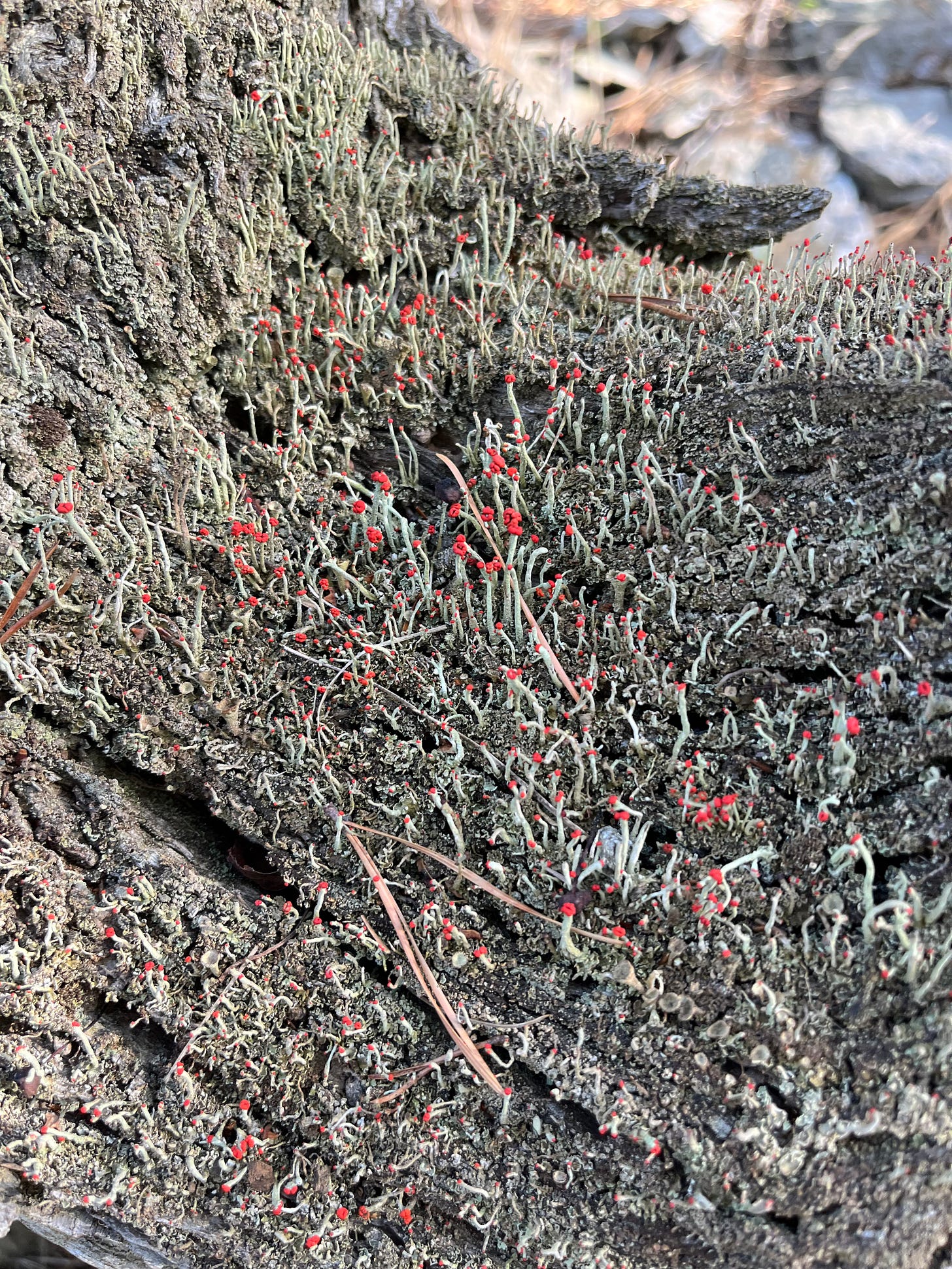
Typically, Lipstick Cup Lichen is found in open or well-lit wooded areas and heathlands growing on strongly acidic wood and soil.

Scrub pines are often found in poorer soils throughout the Appalachian Mountains.
Everyday out here is a new adventure. I'm overwhelmed with gratitude for the opportunity to spend this precious time with my family. These moments remind me to cherish the present and savor the joy of togetherness. They are the true treasures of life's grandest adventures.
Happy hiking!

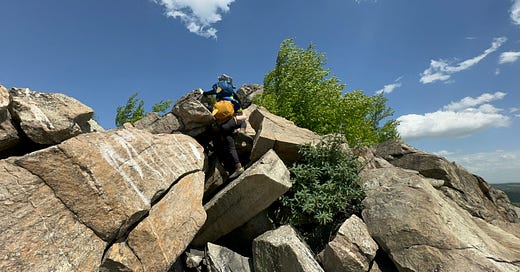



I admire this so much. And you have inspired me to get outside more !!! Bro is missed so much.
Awe pictures Mel! It looks like y’all are having so much fun! One foot in front of the other! 😊💪🏻😉 💕Sarah